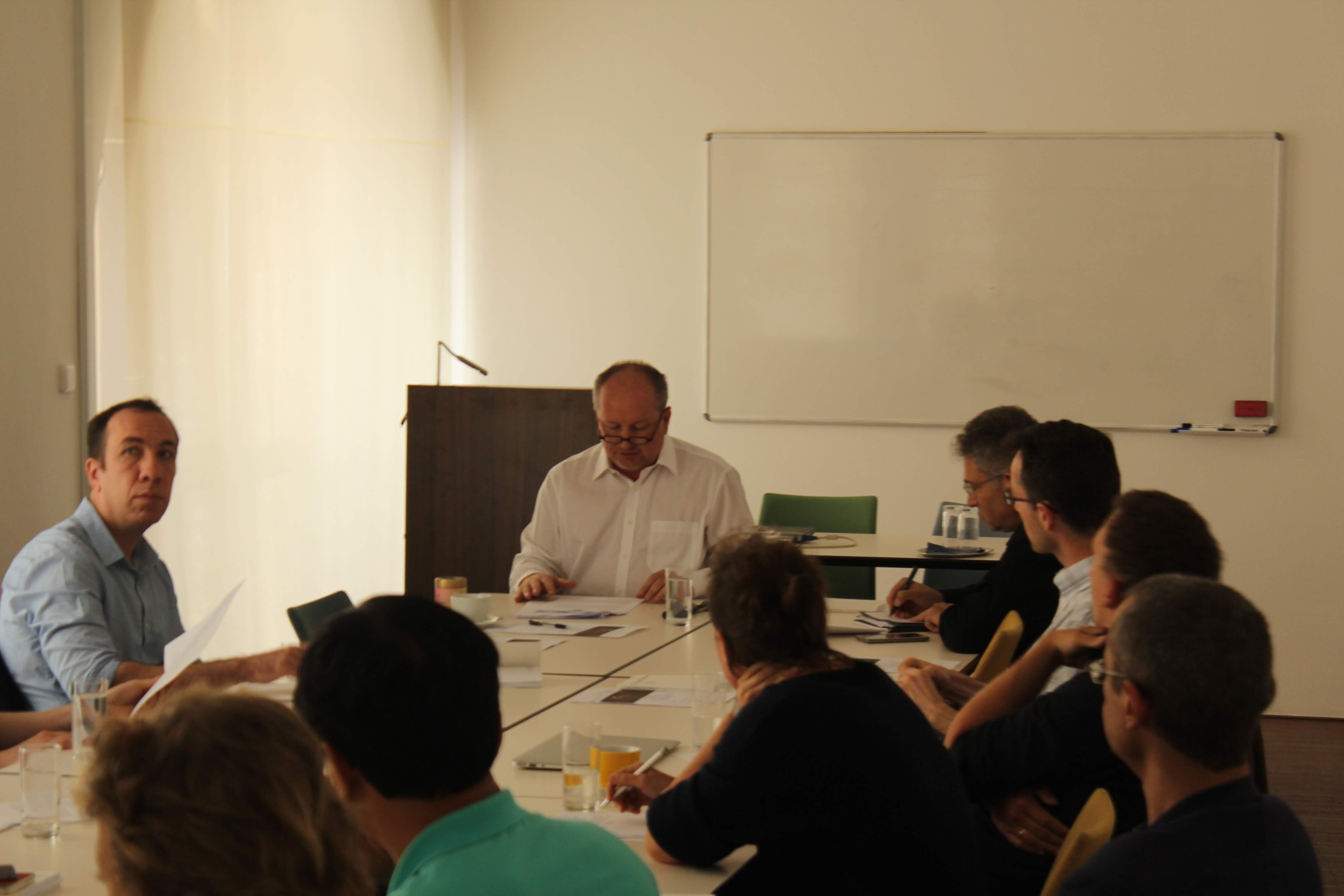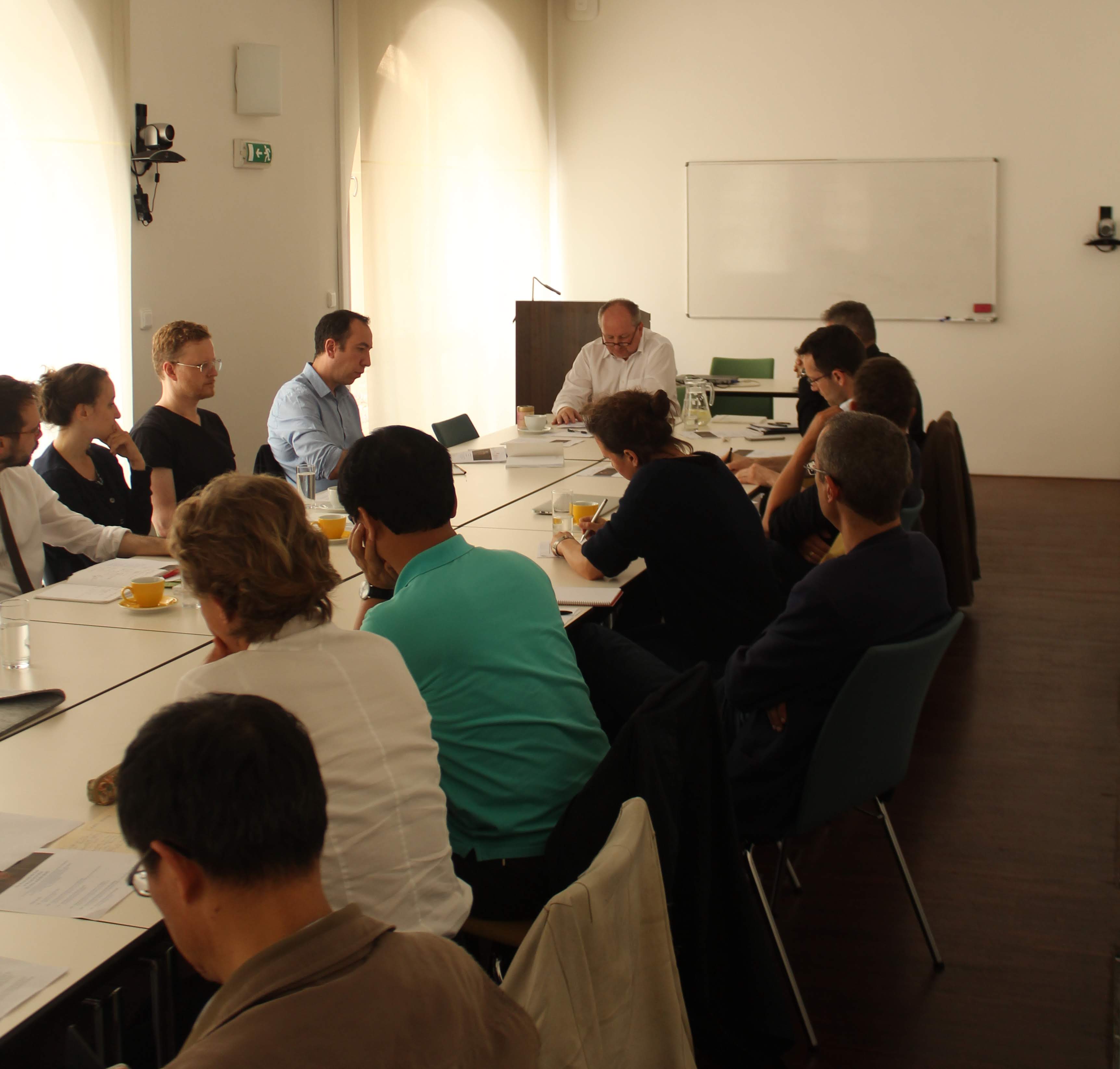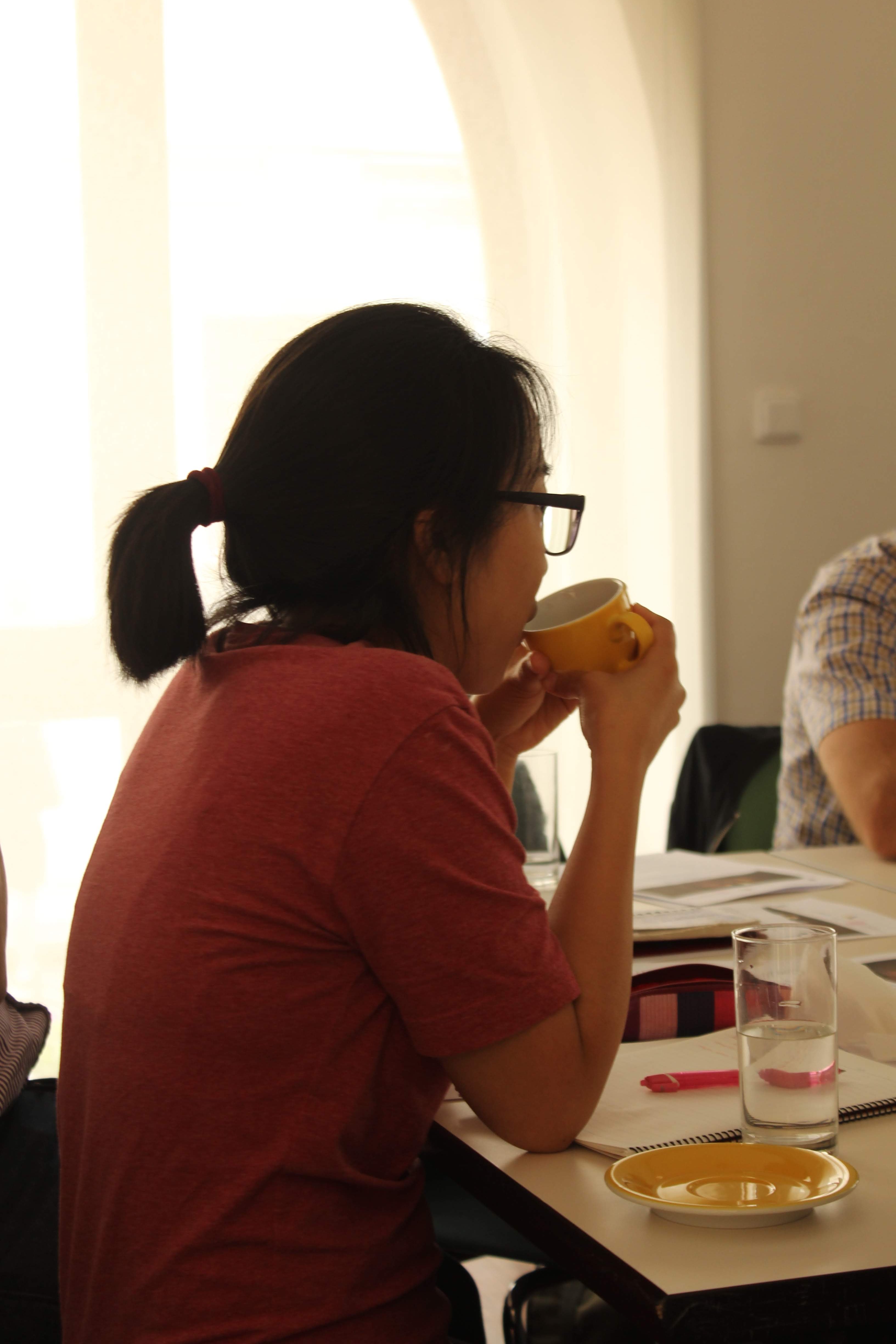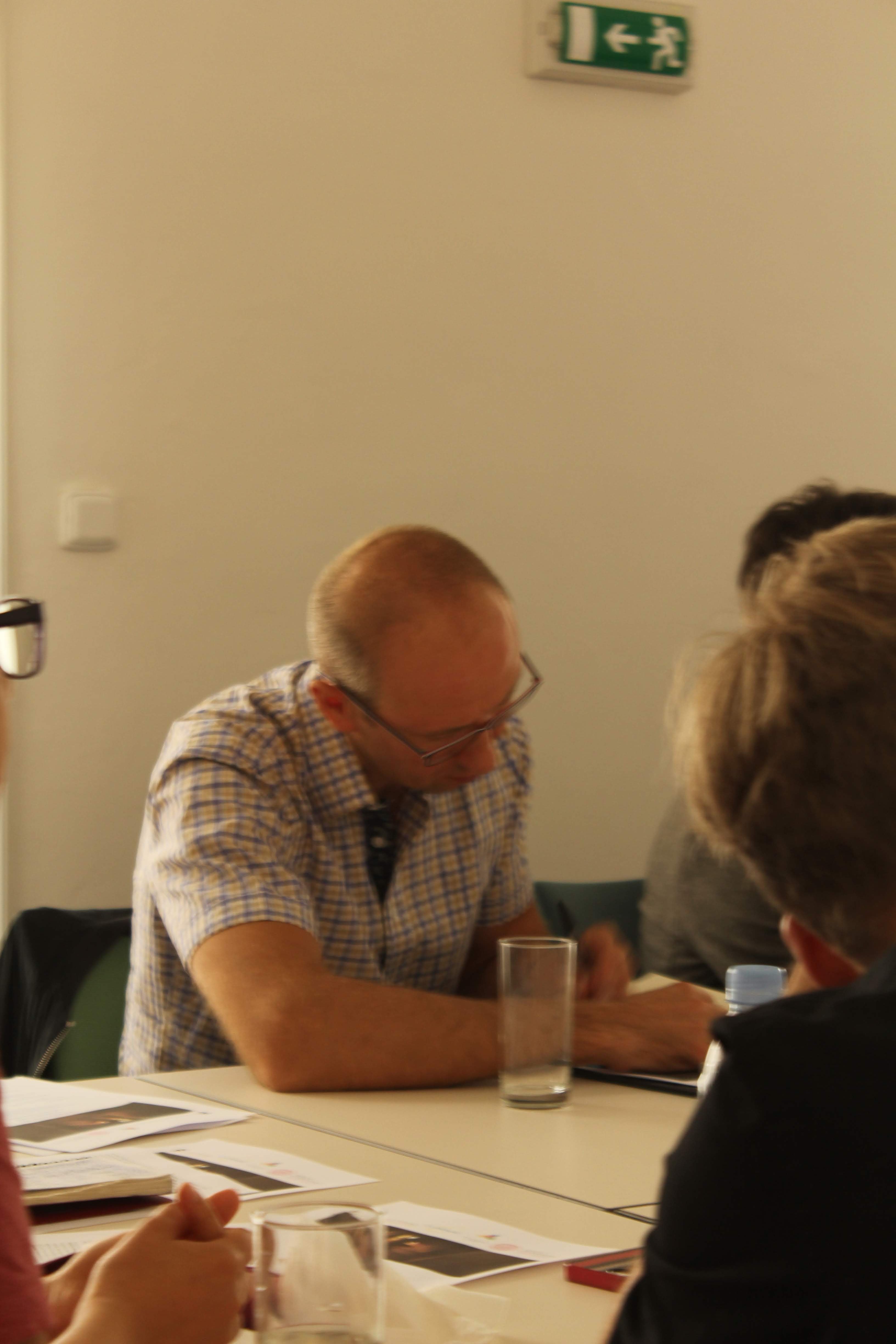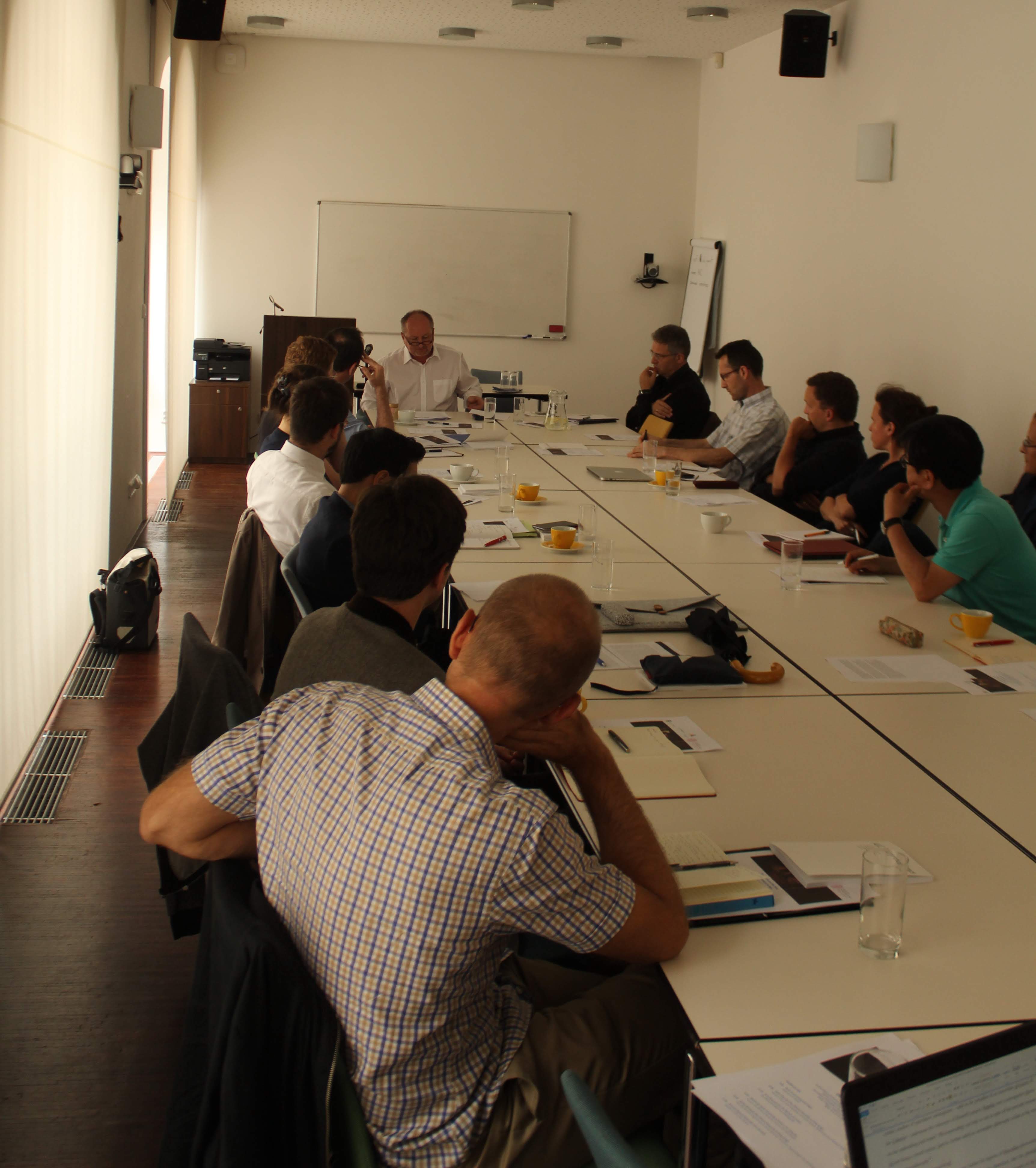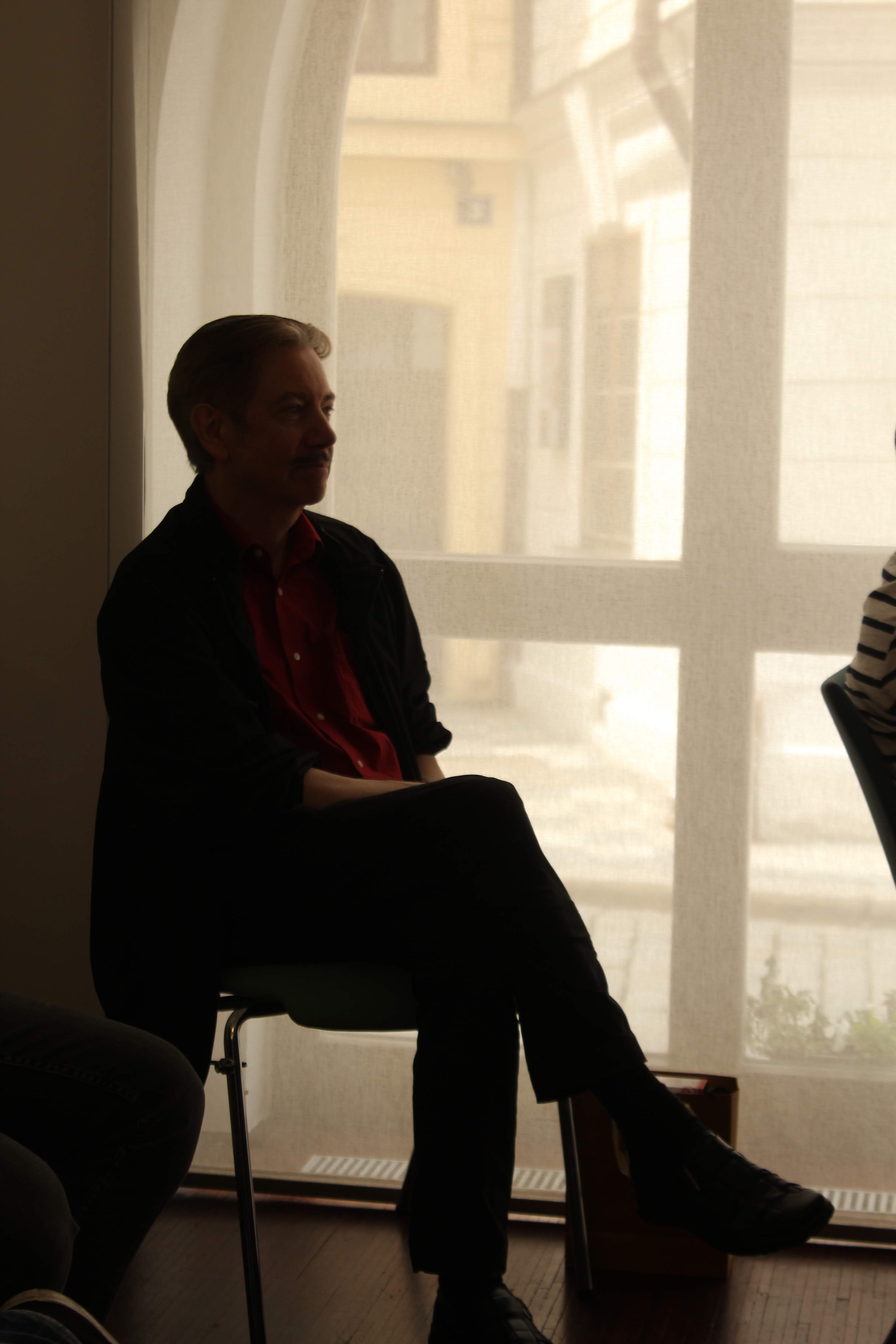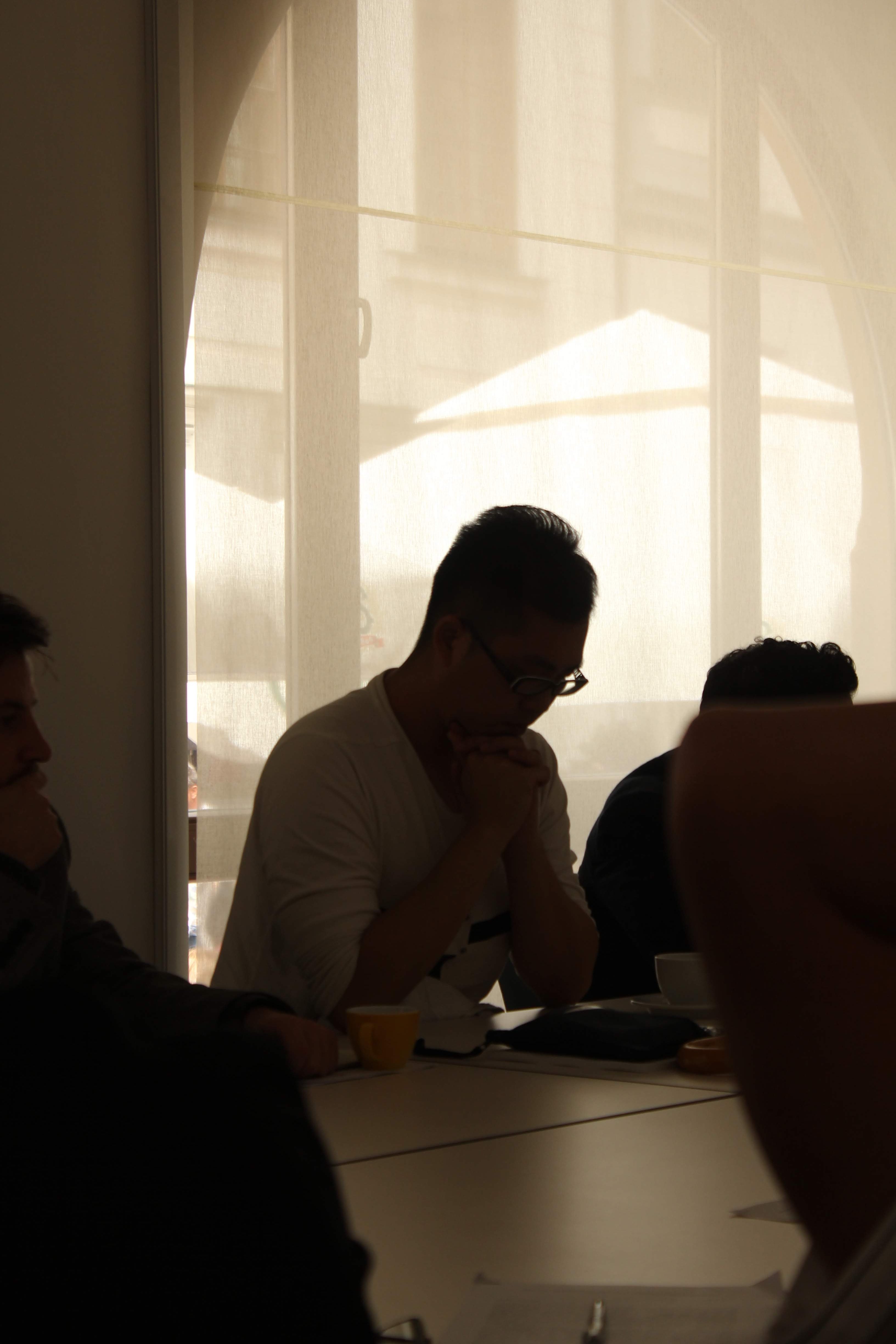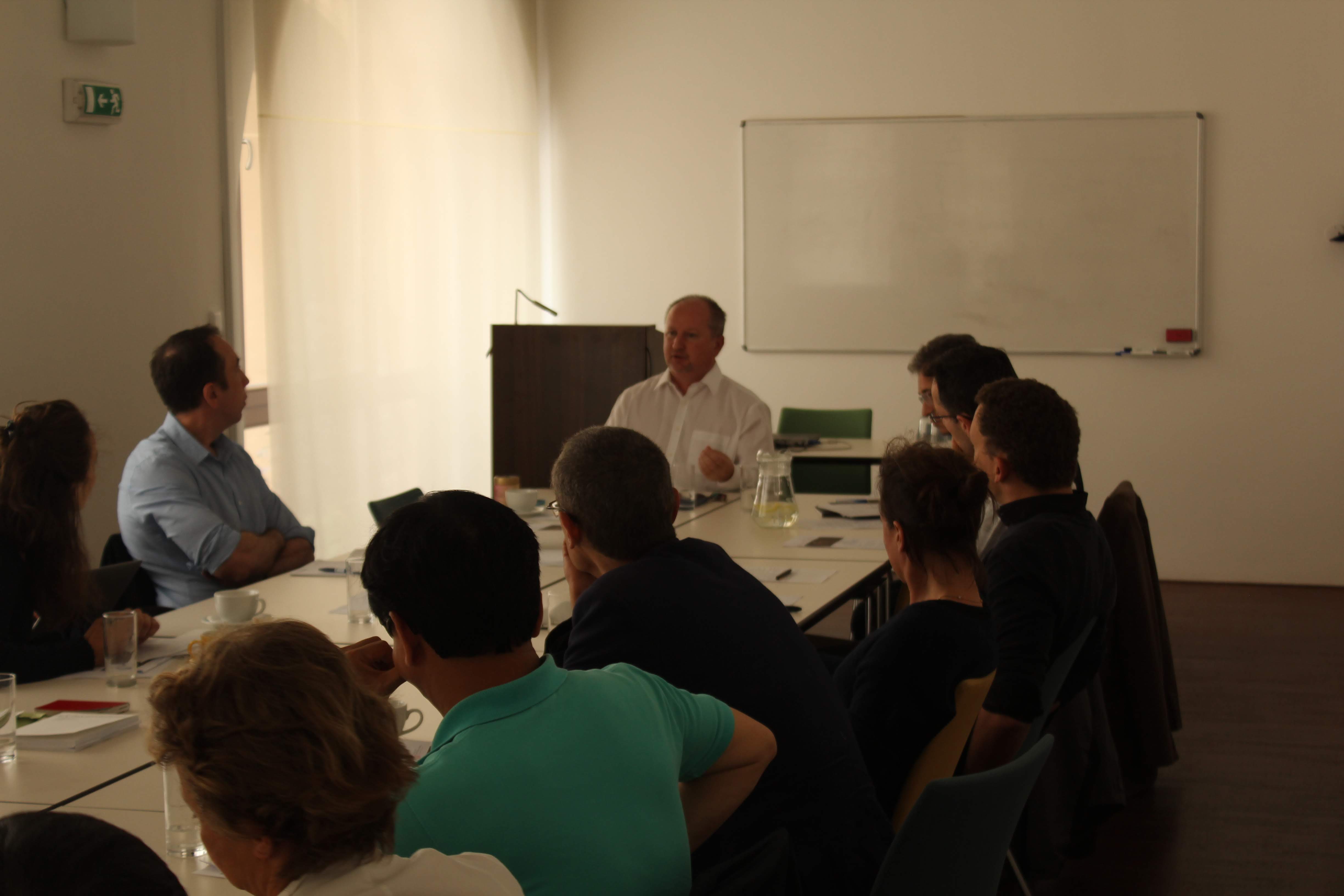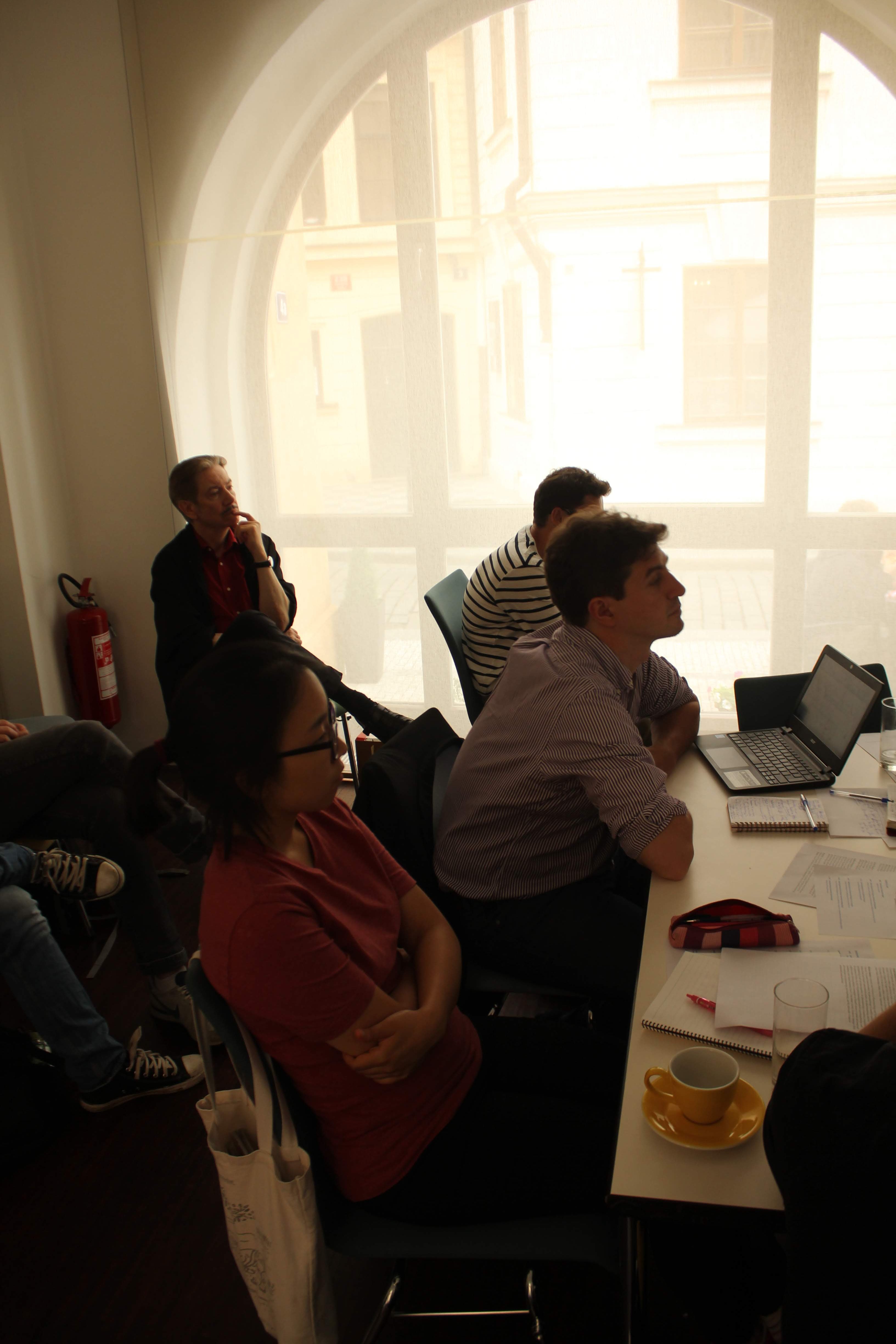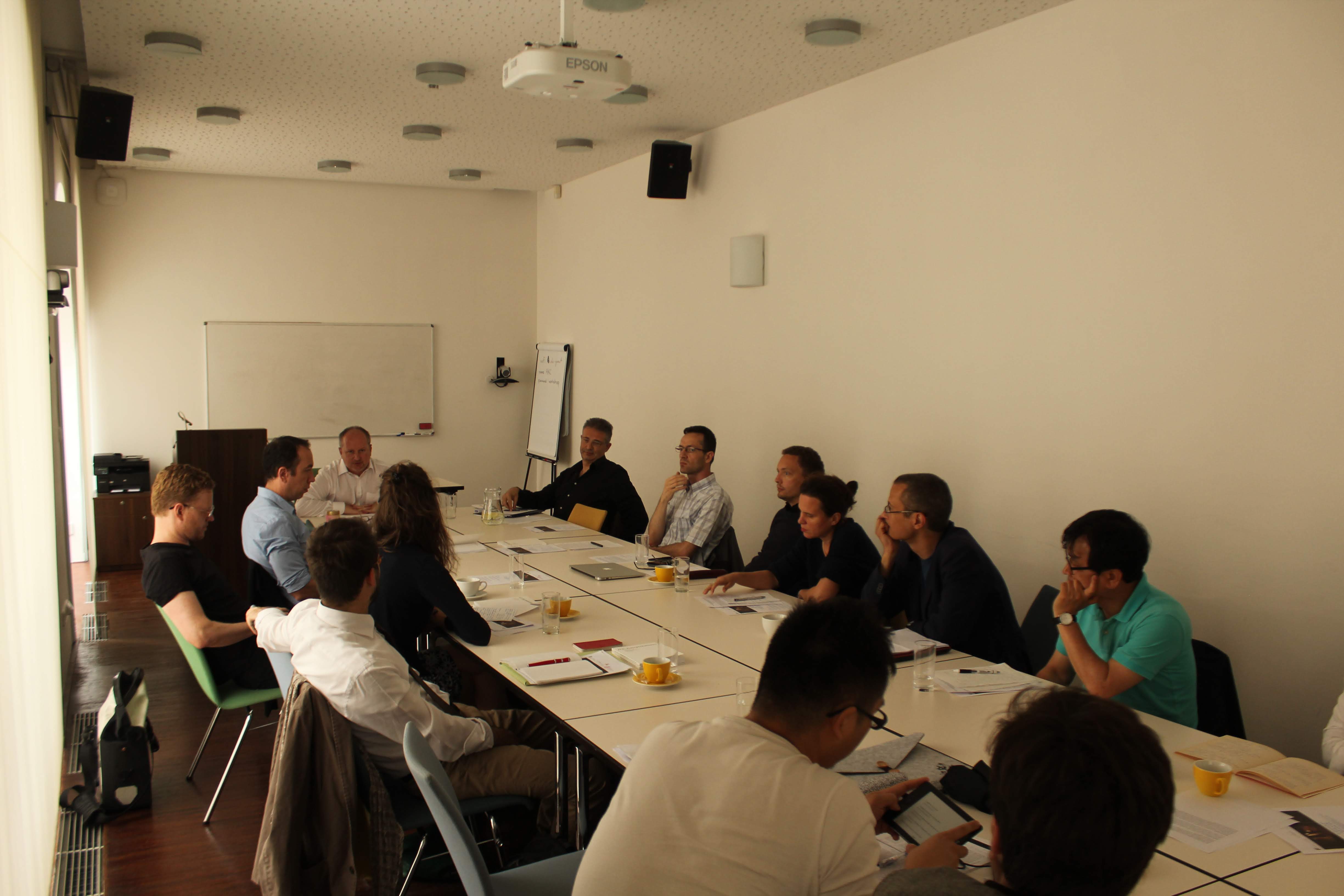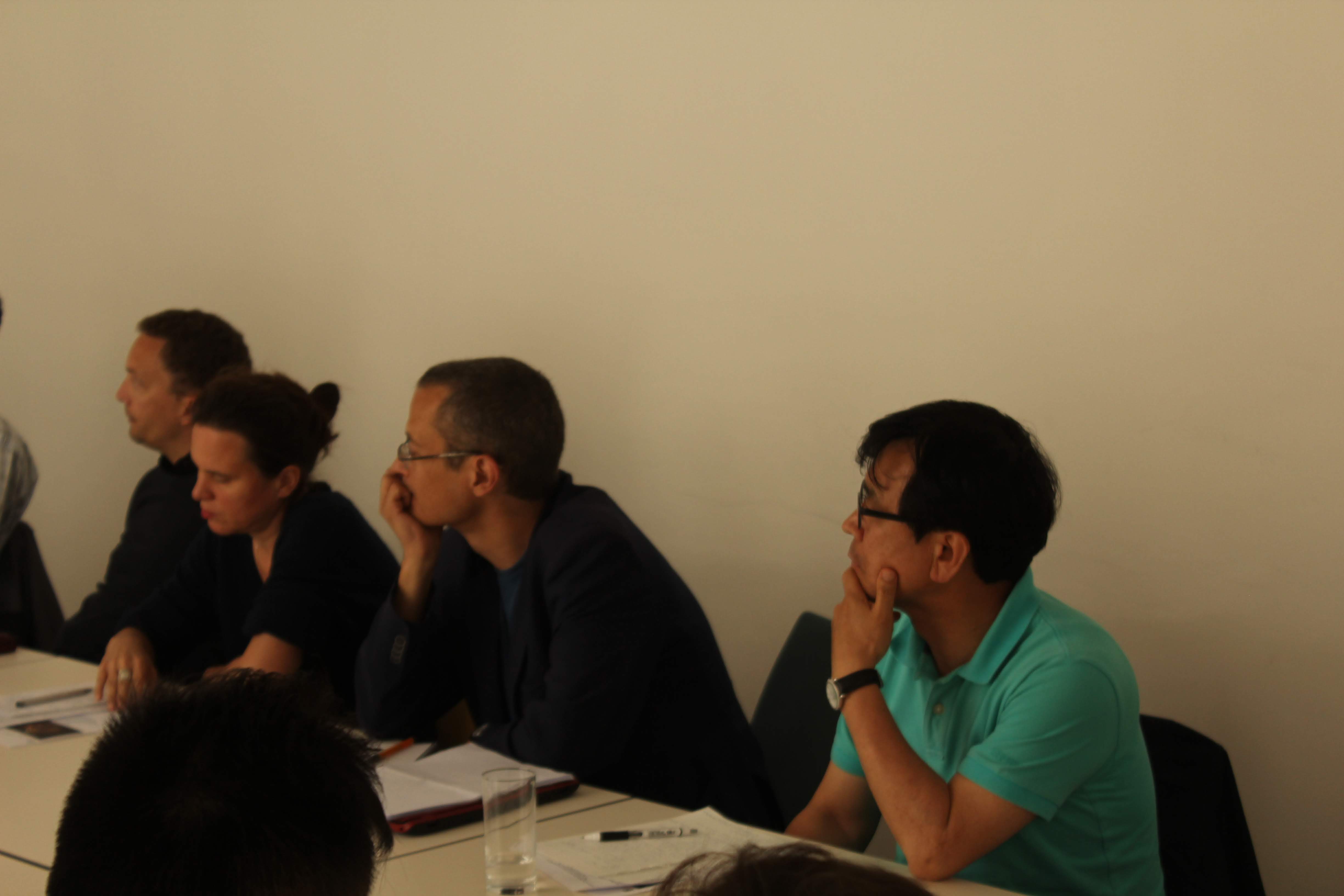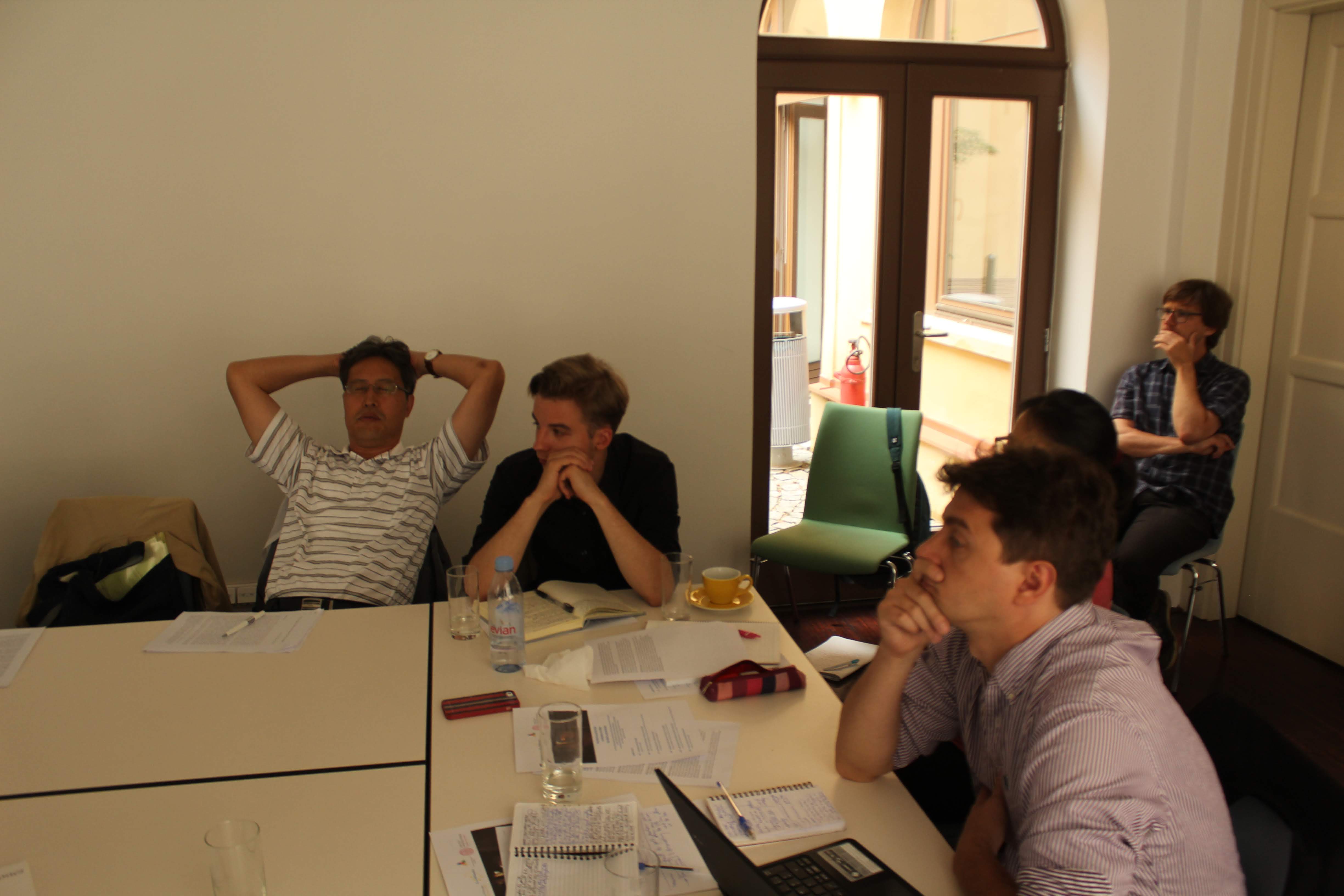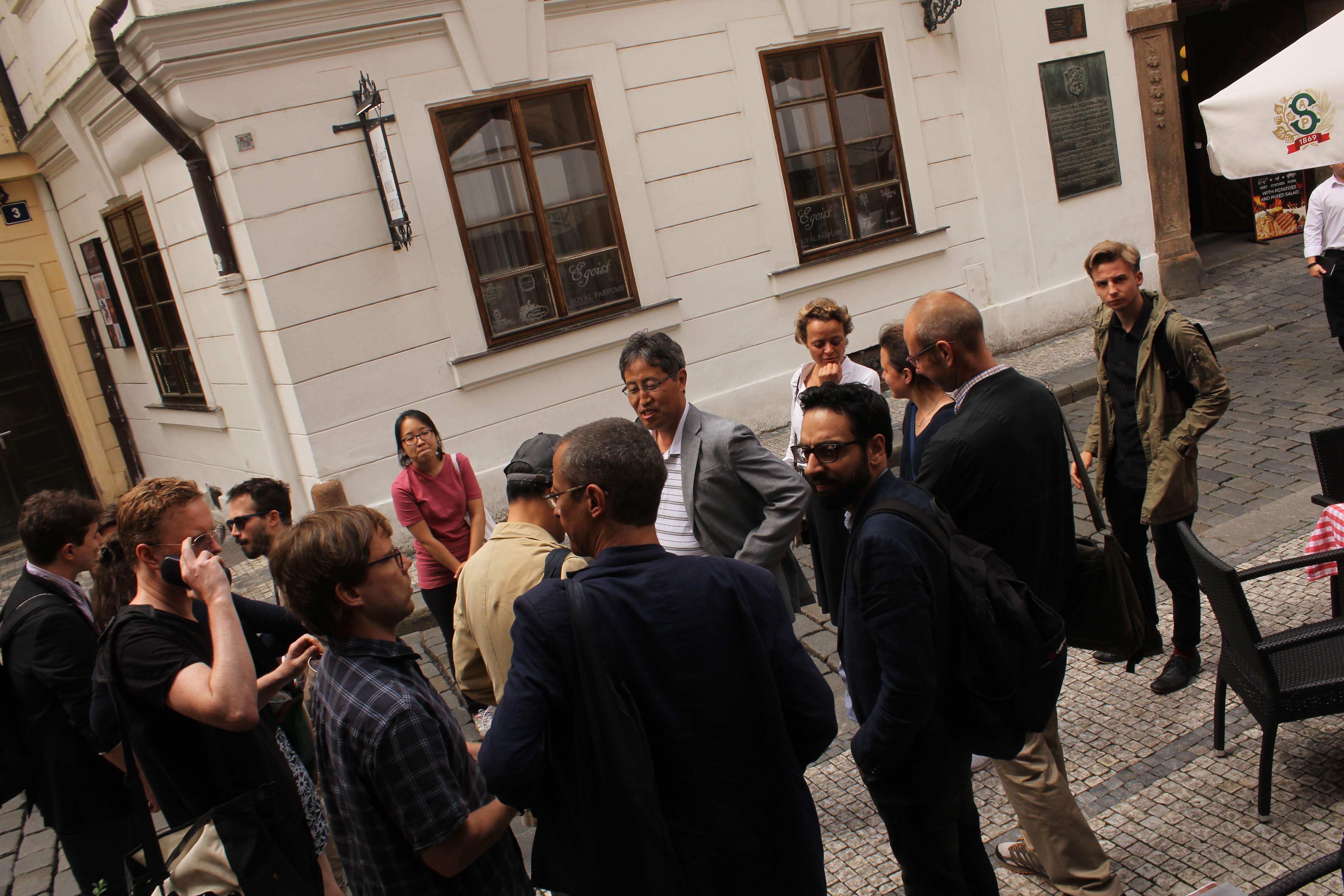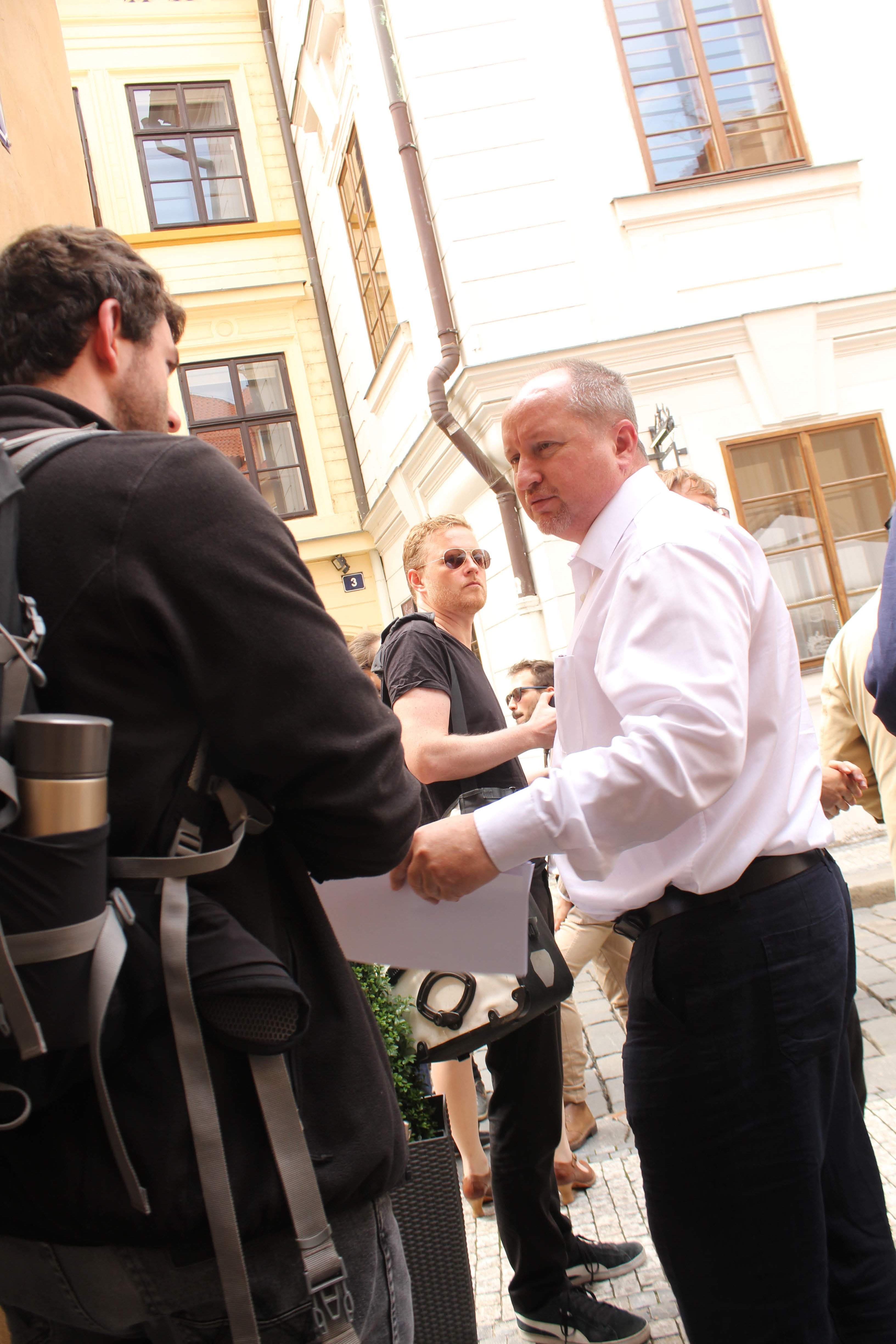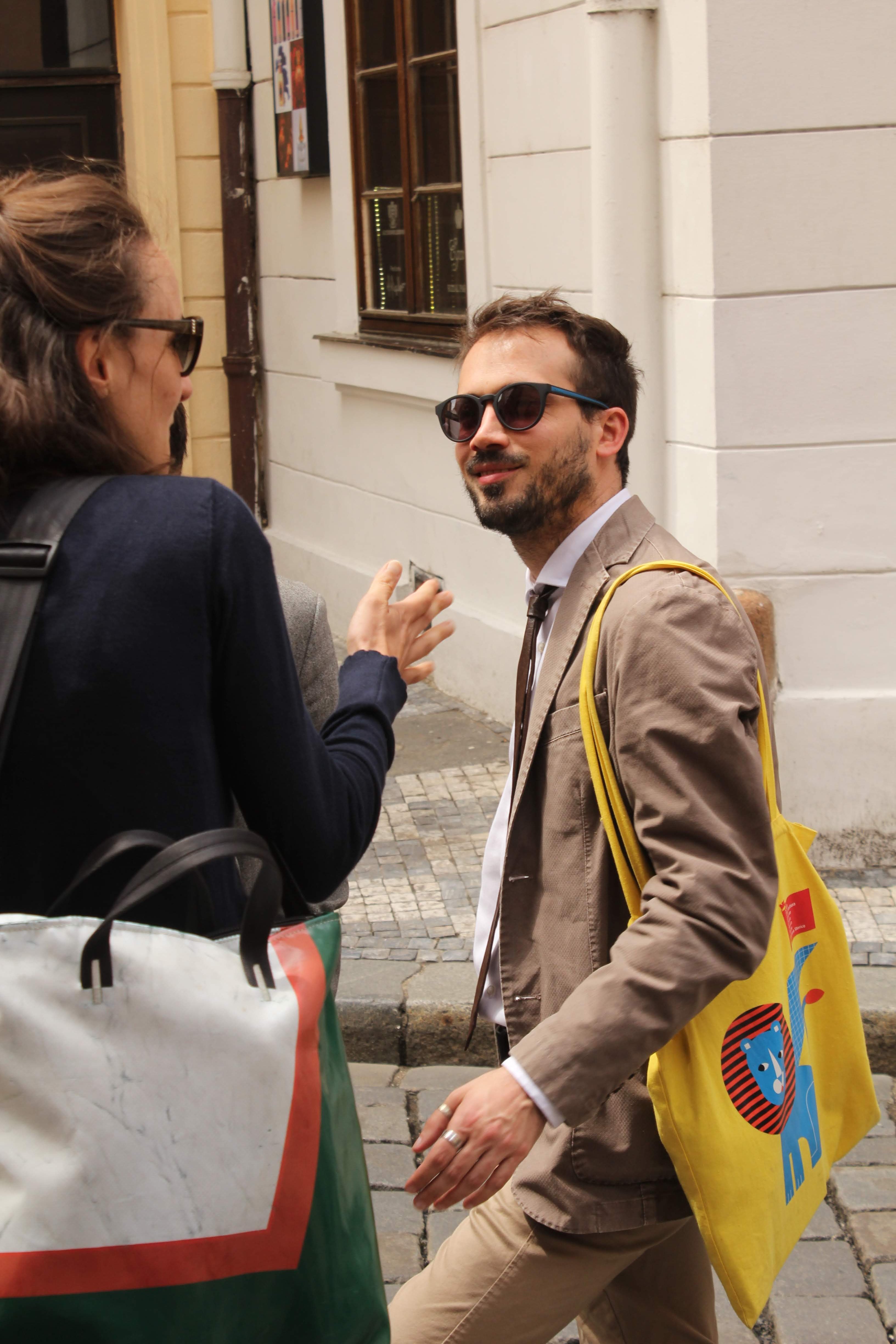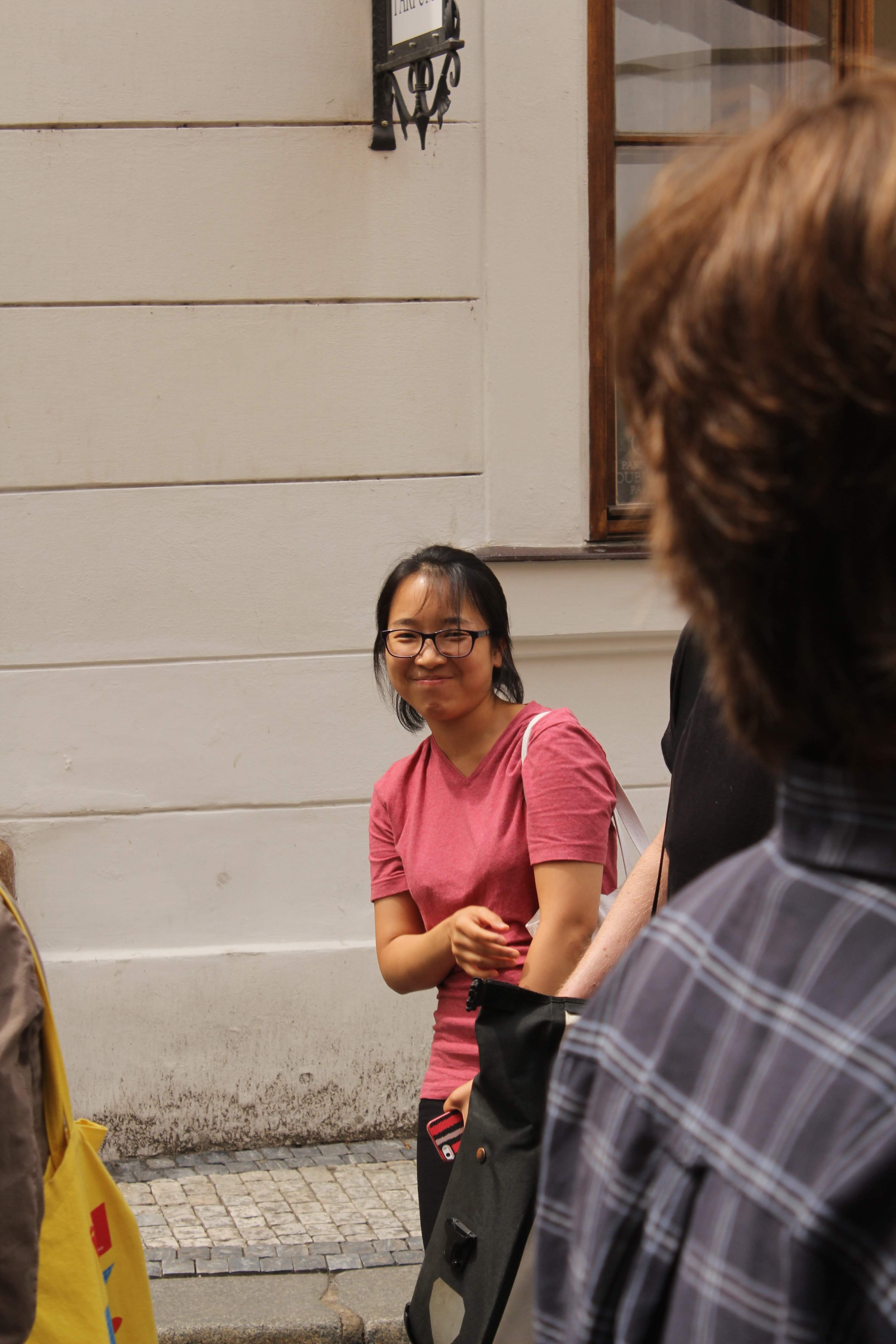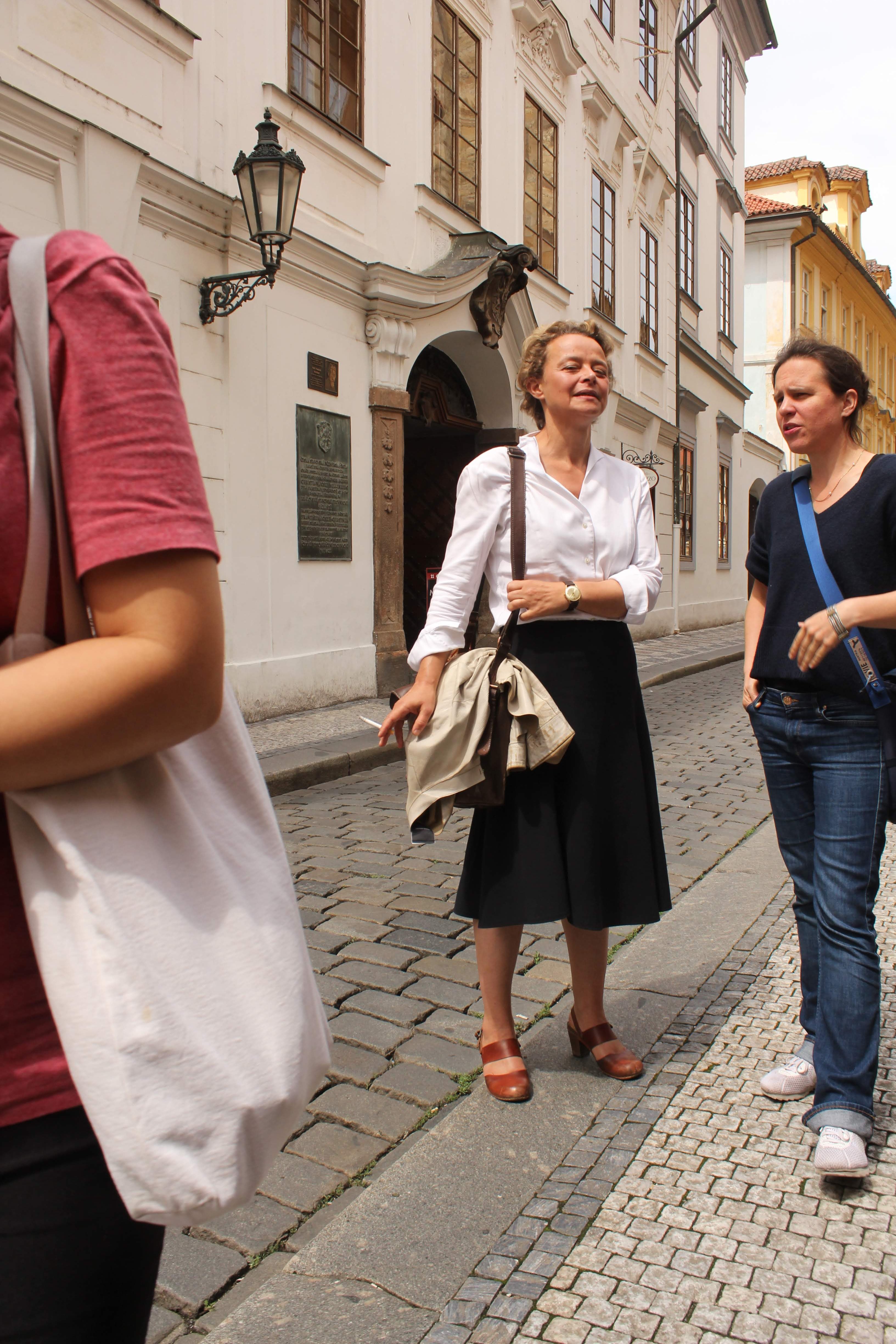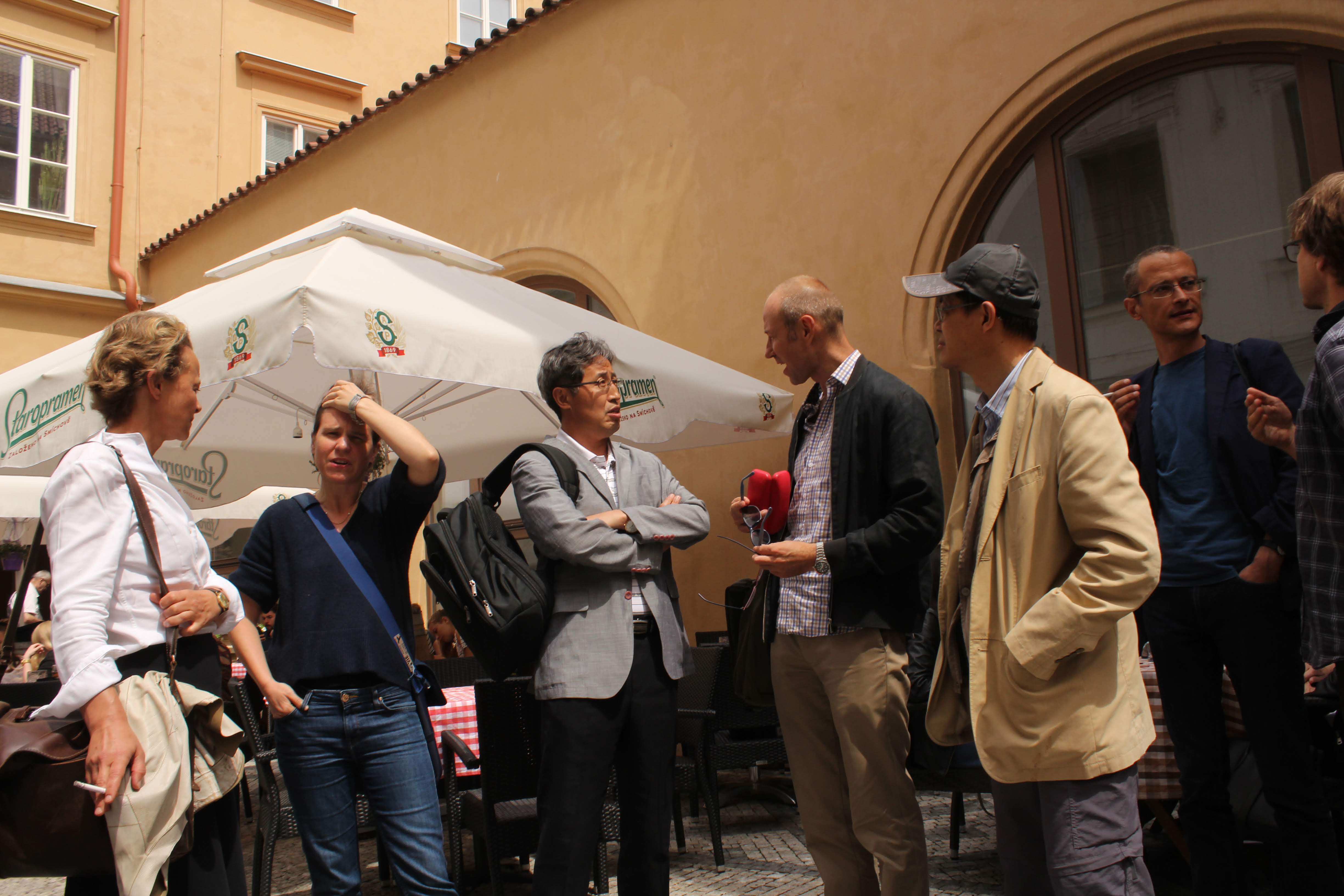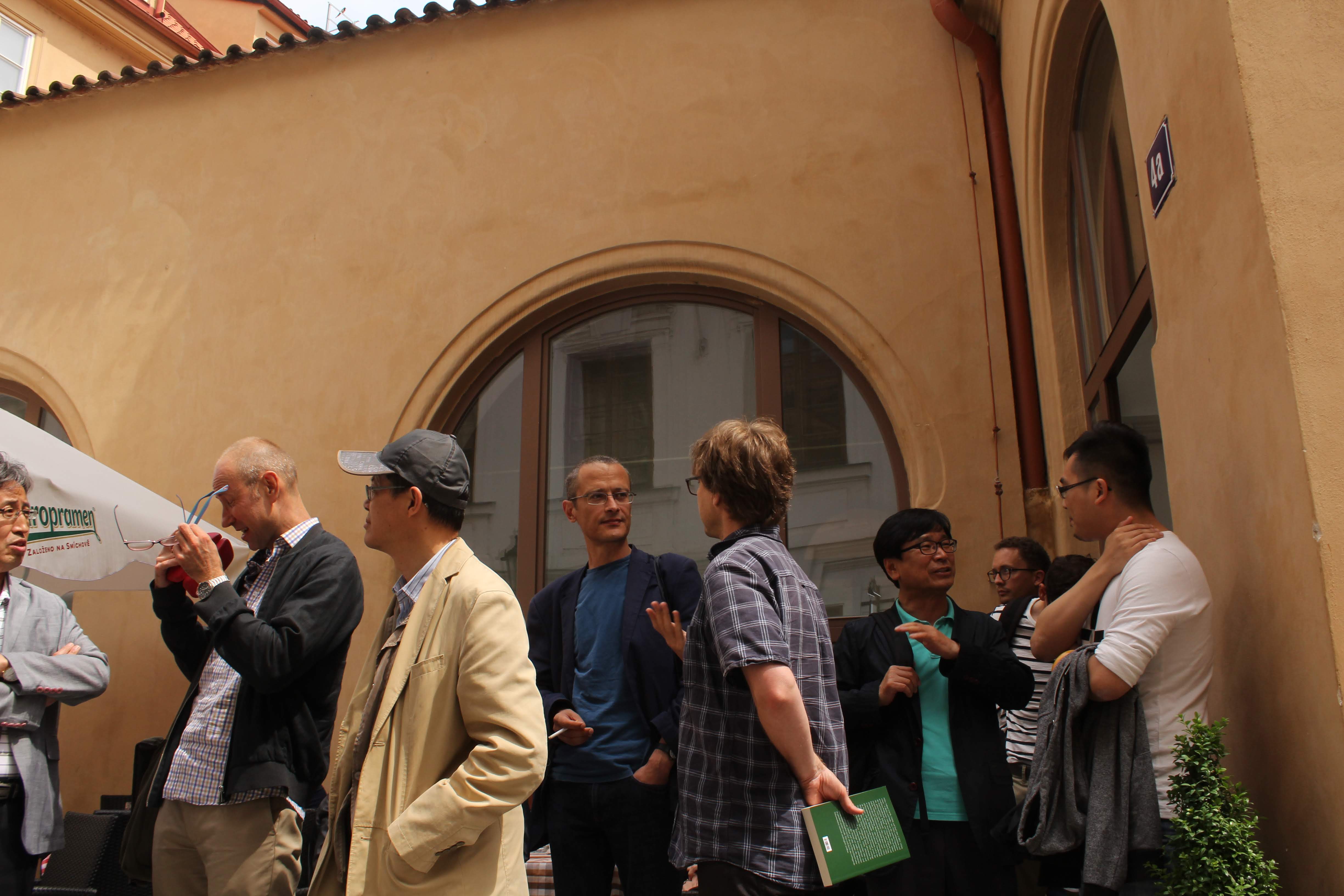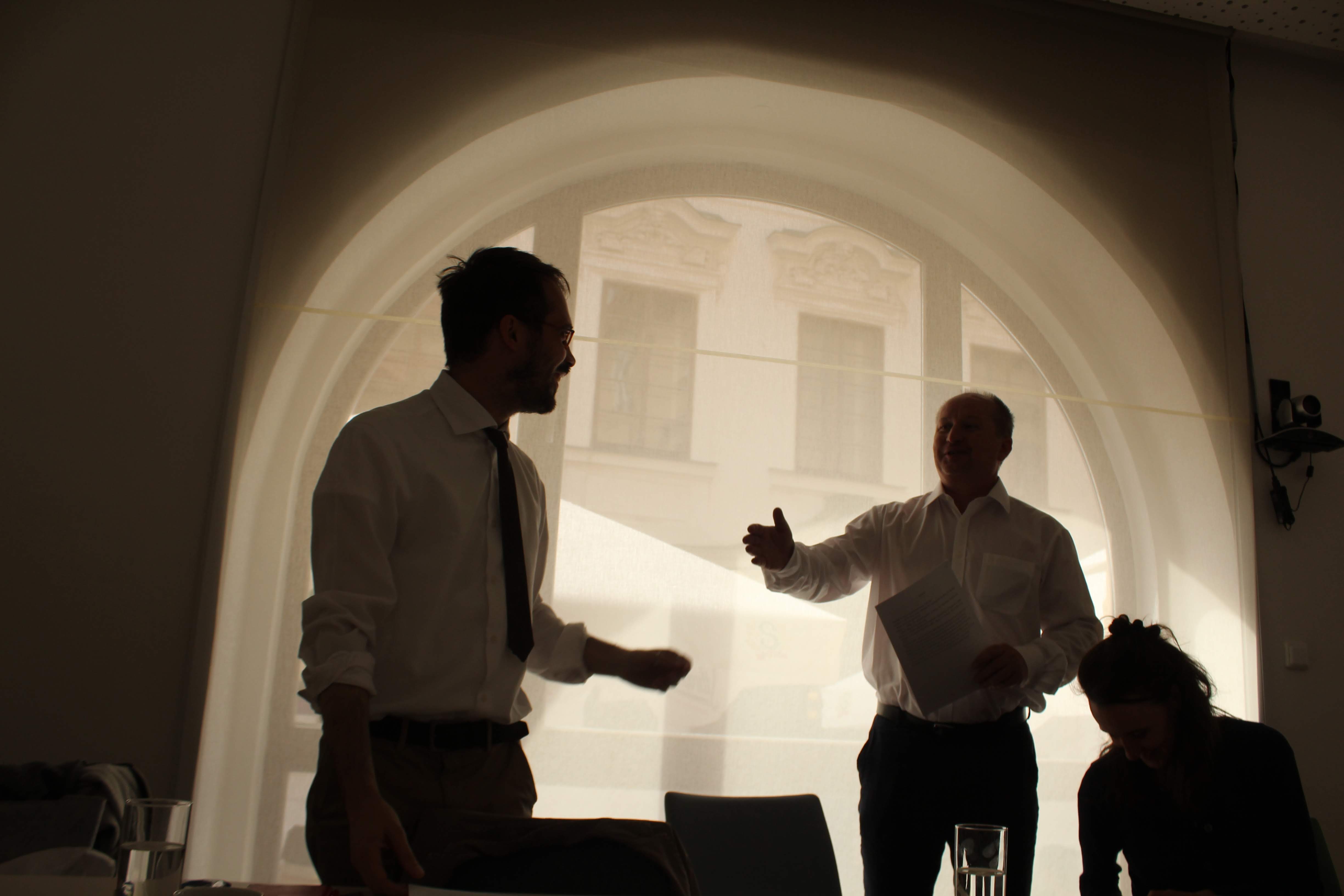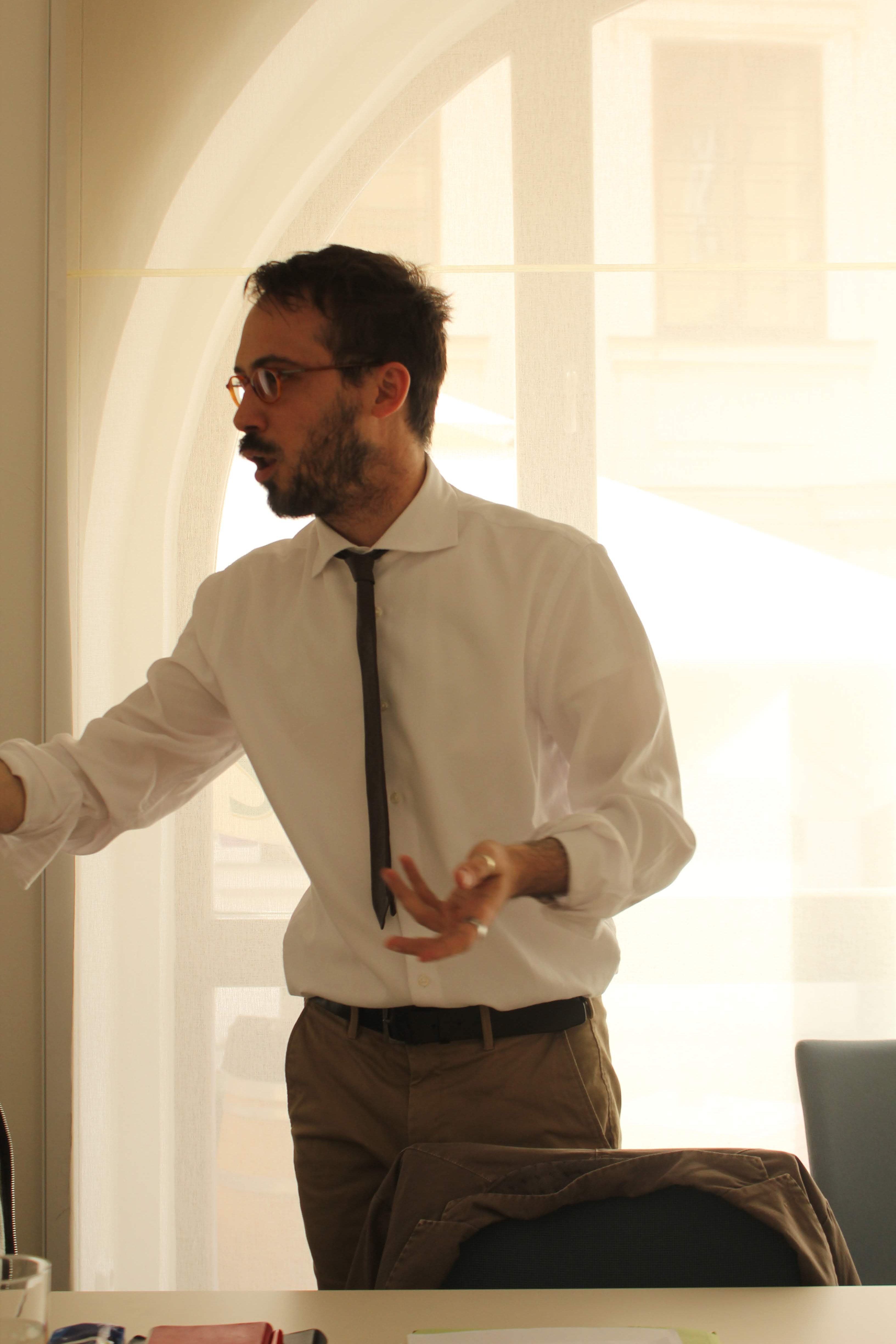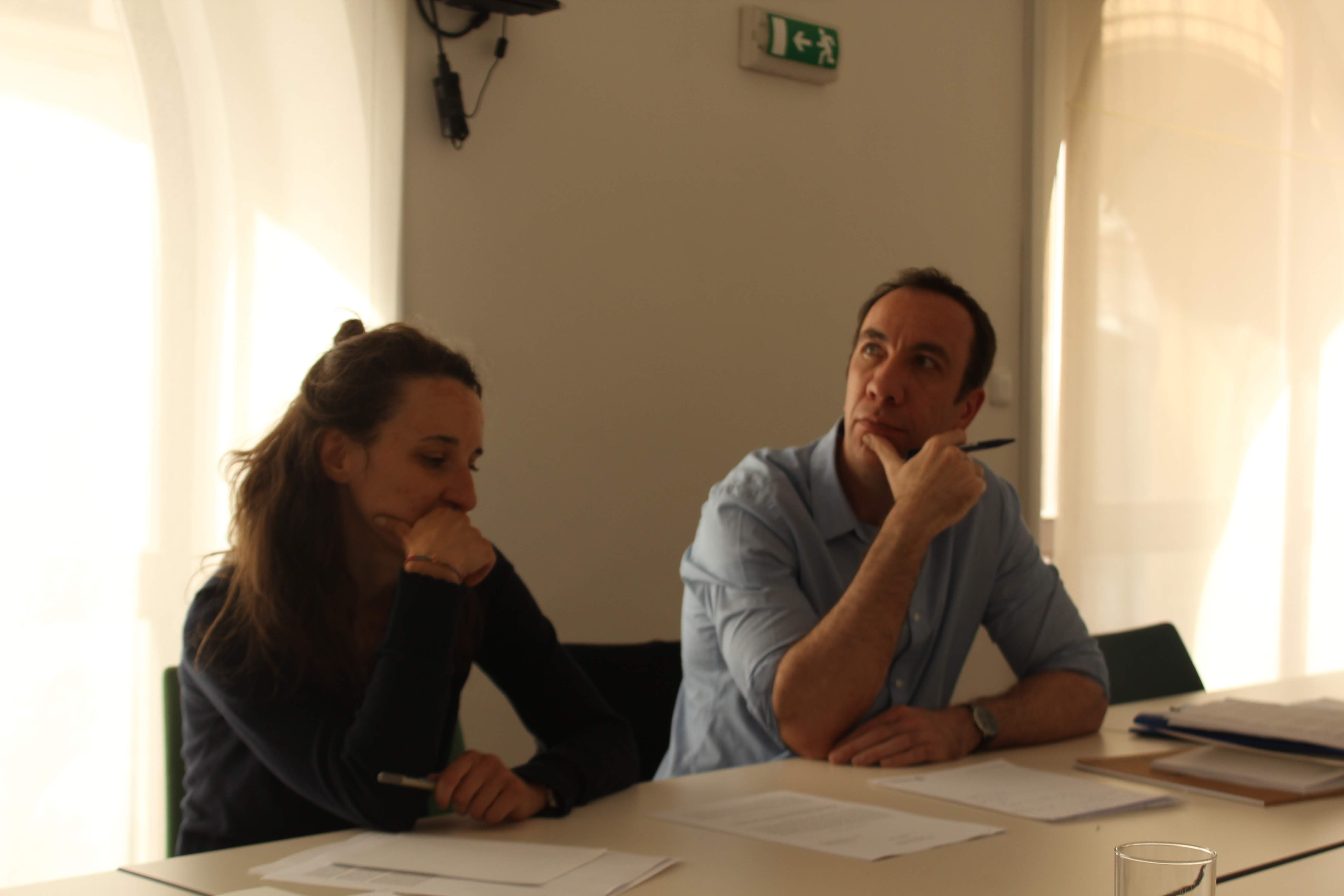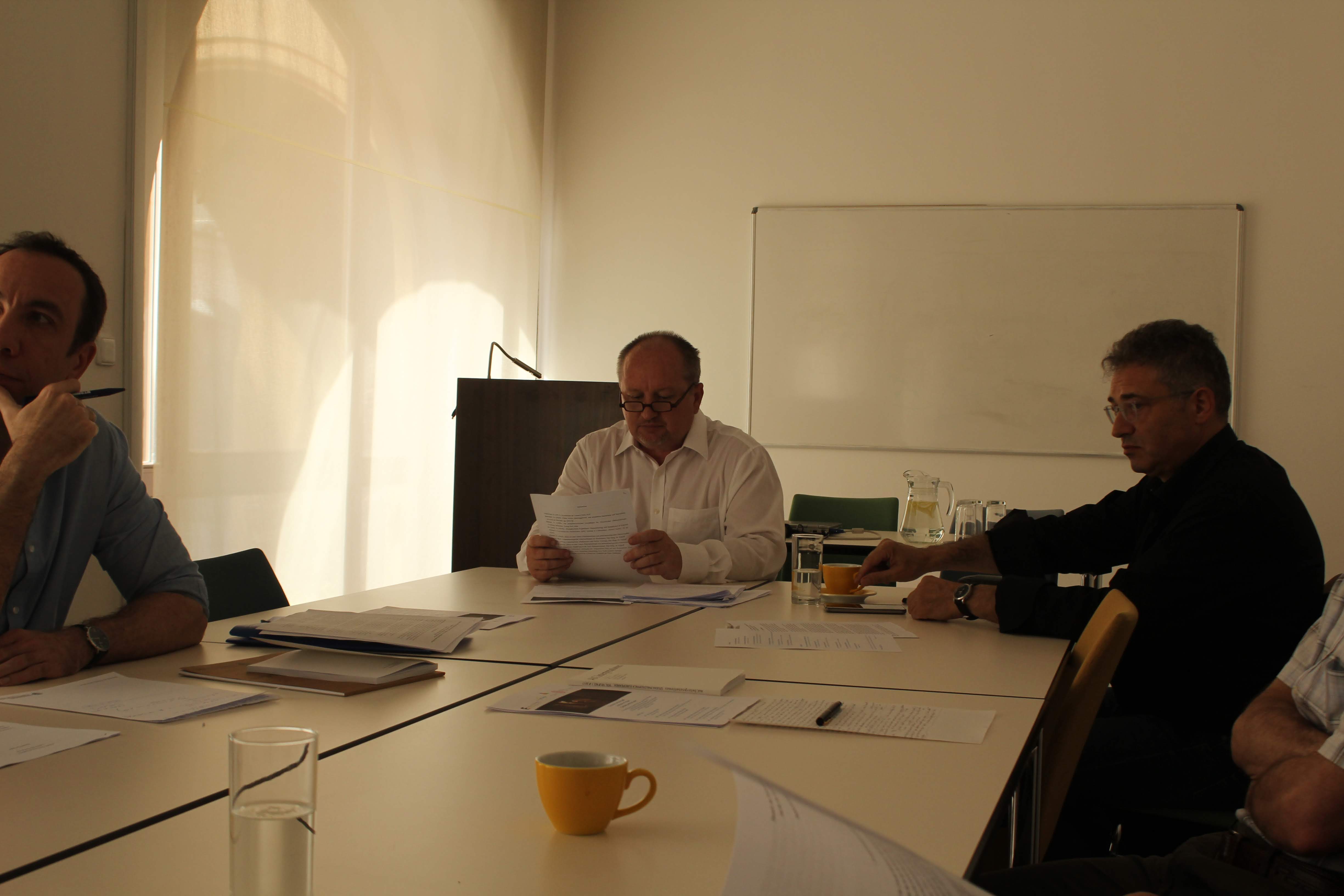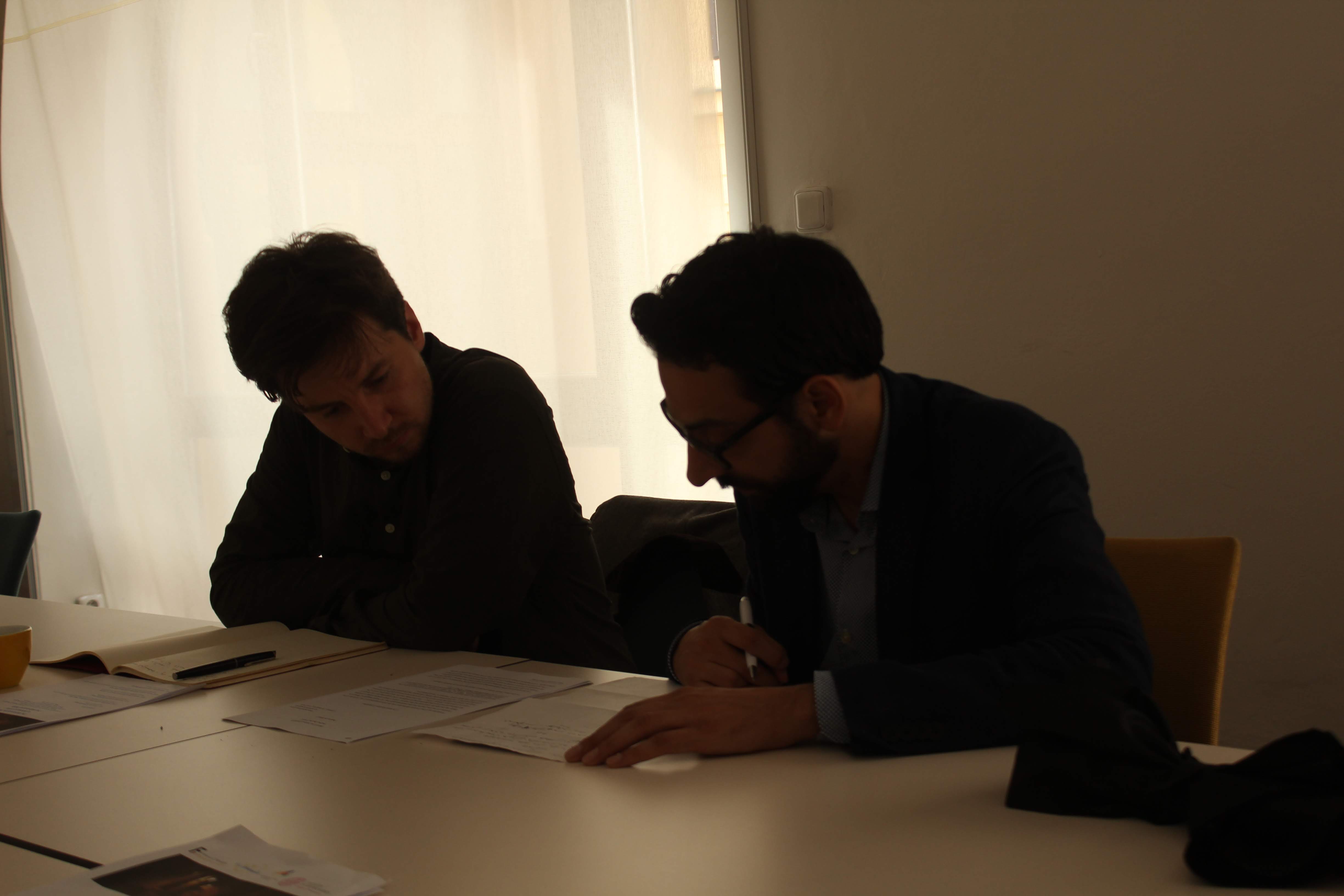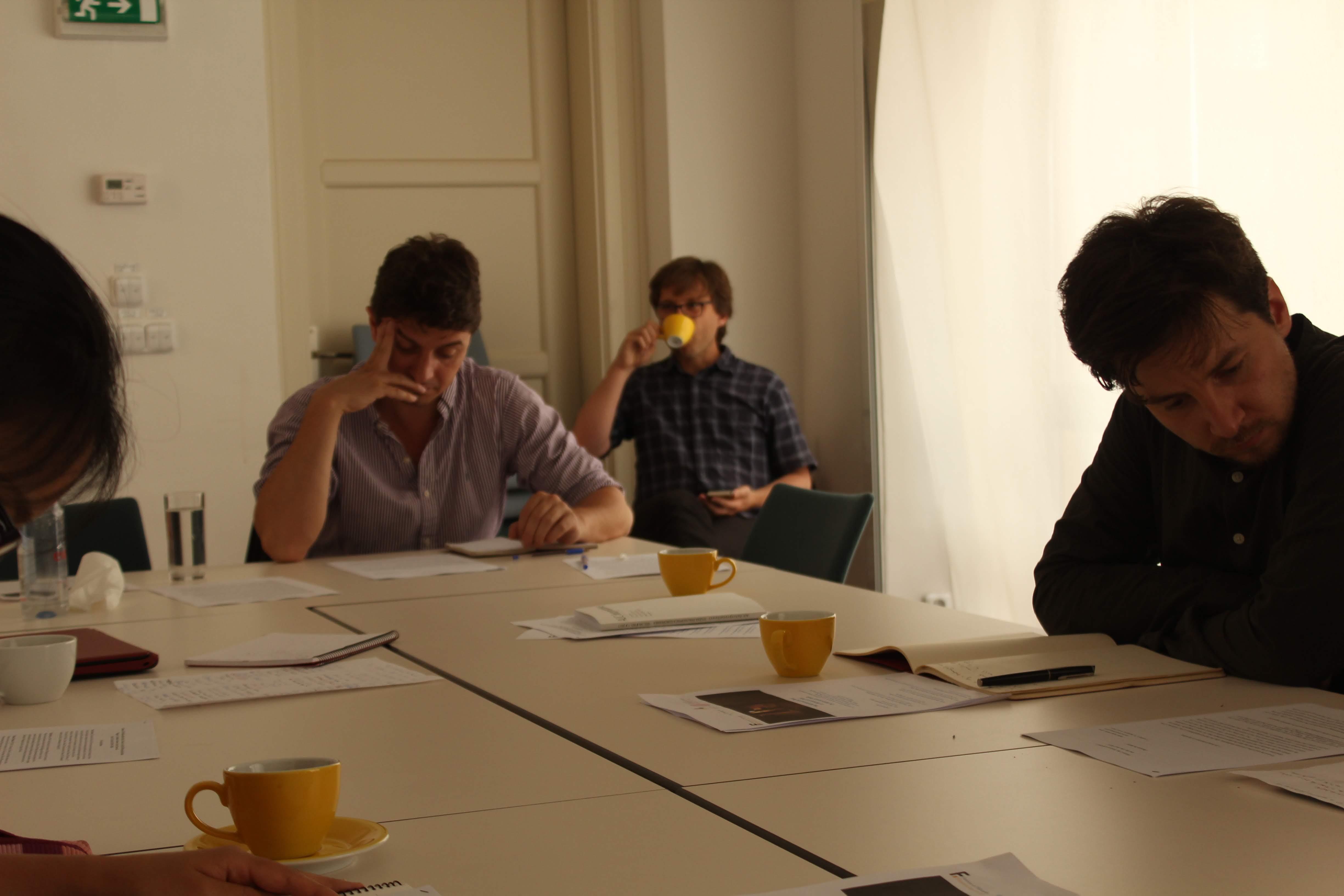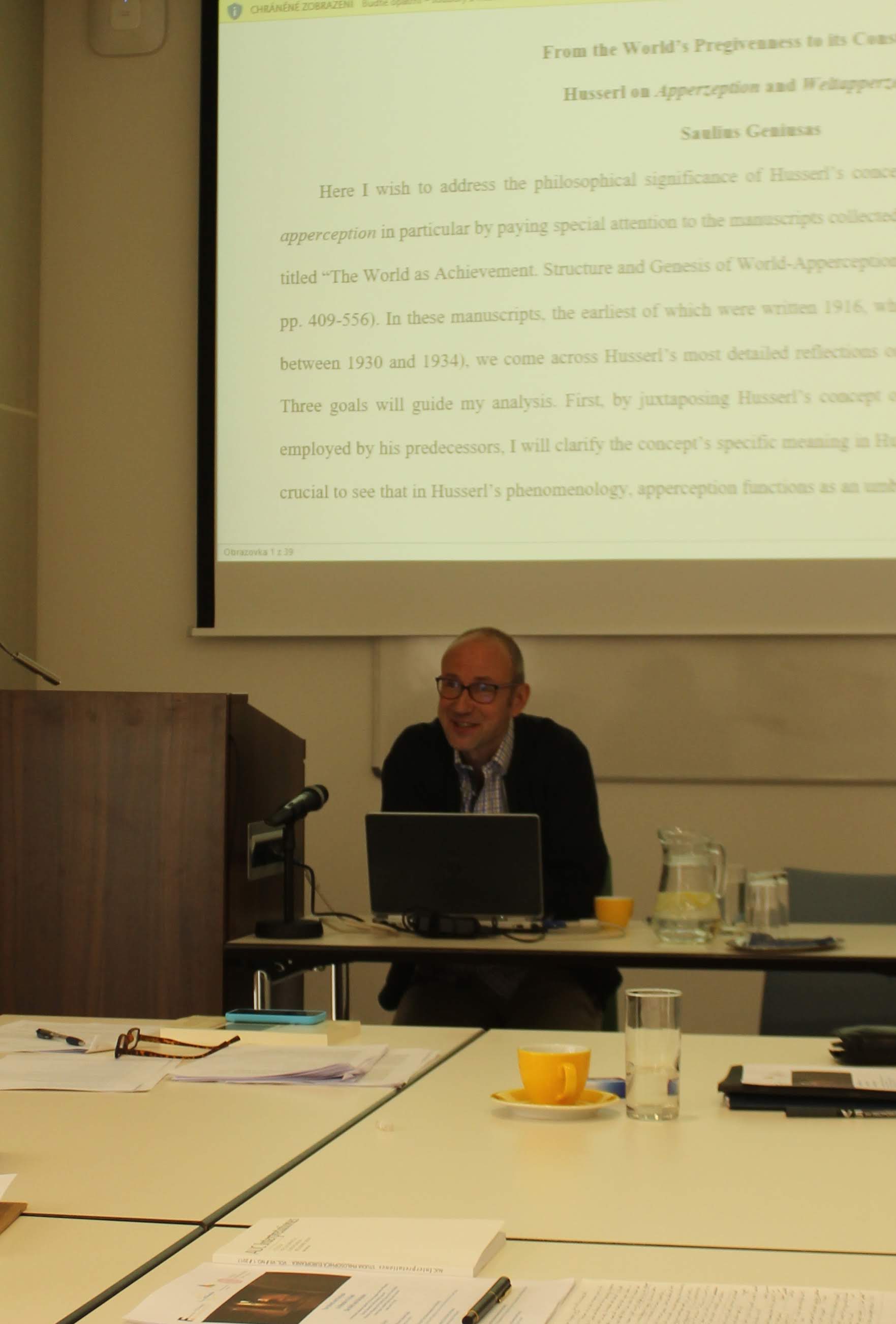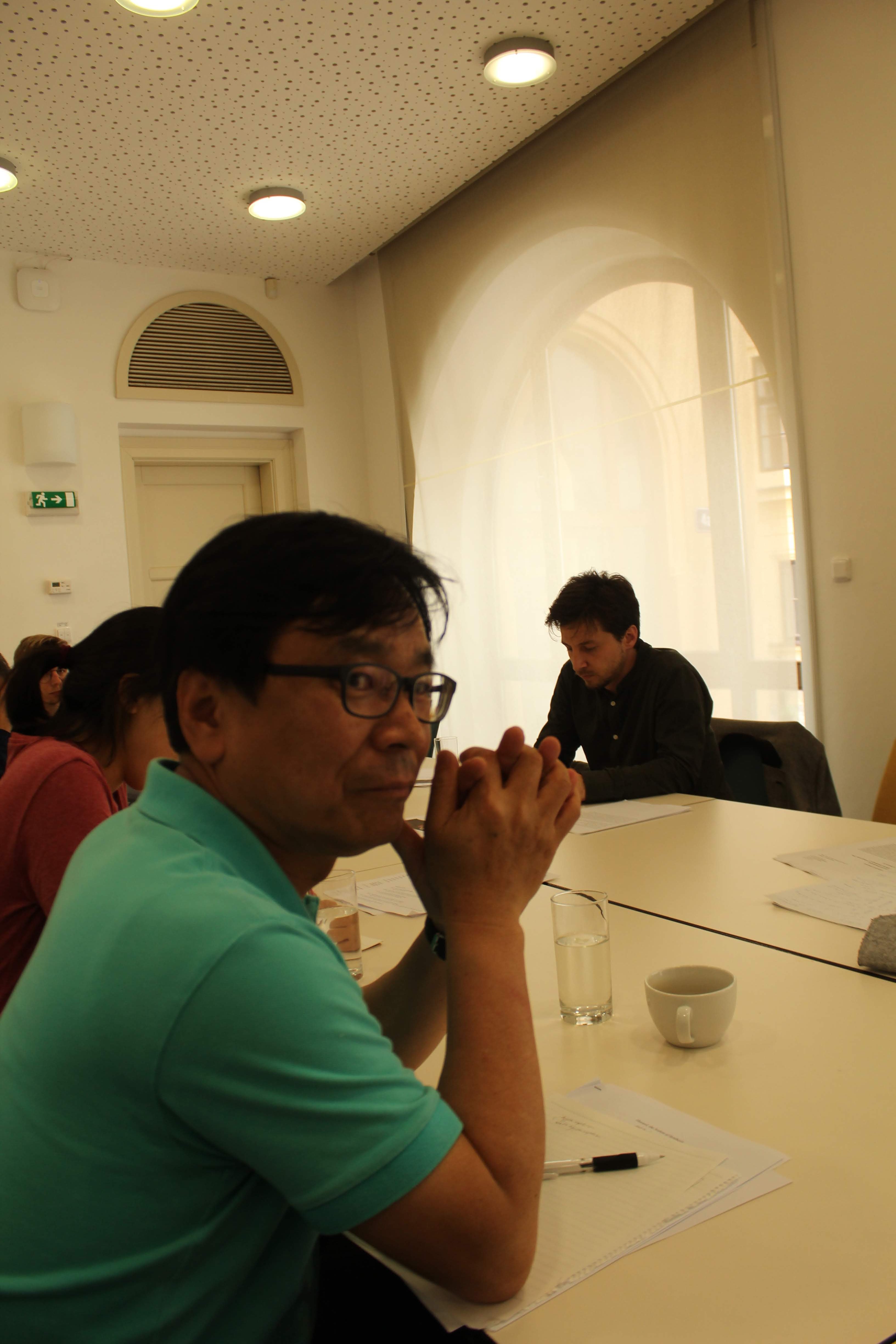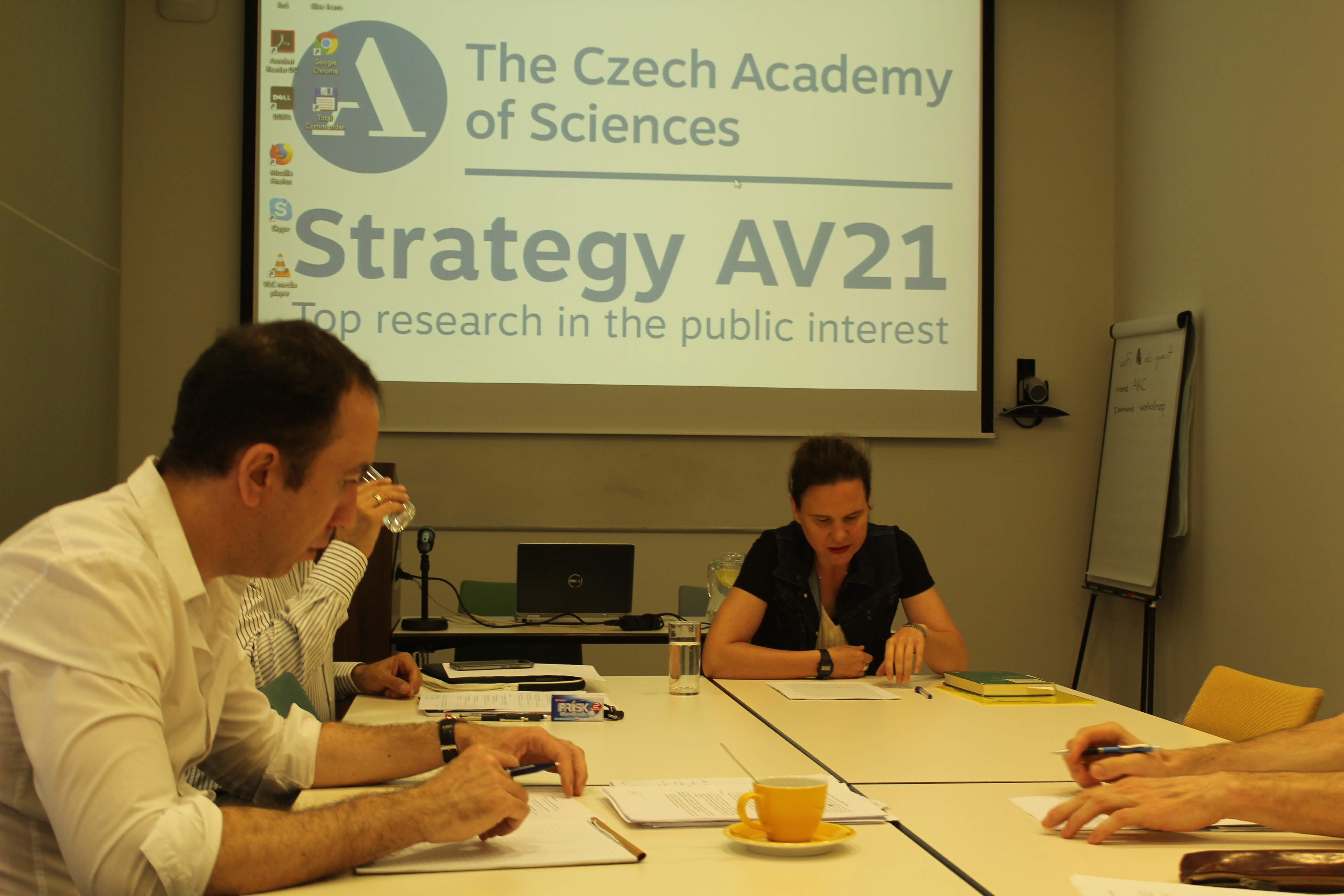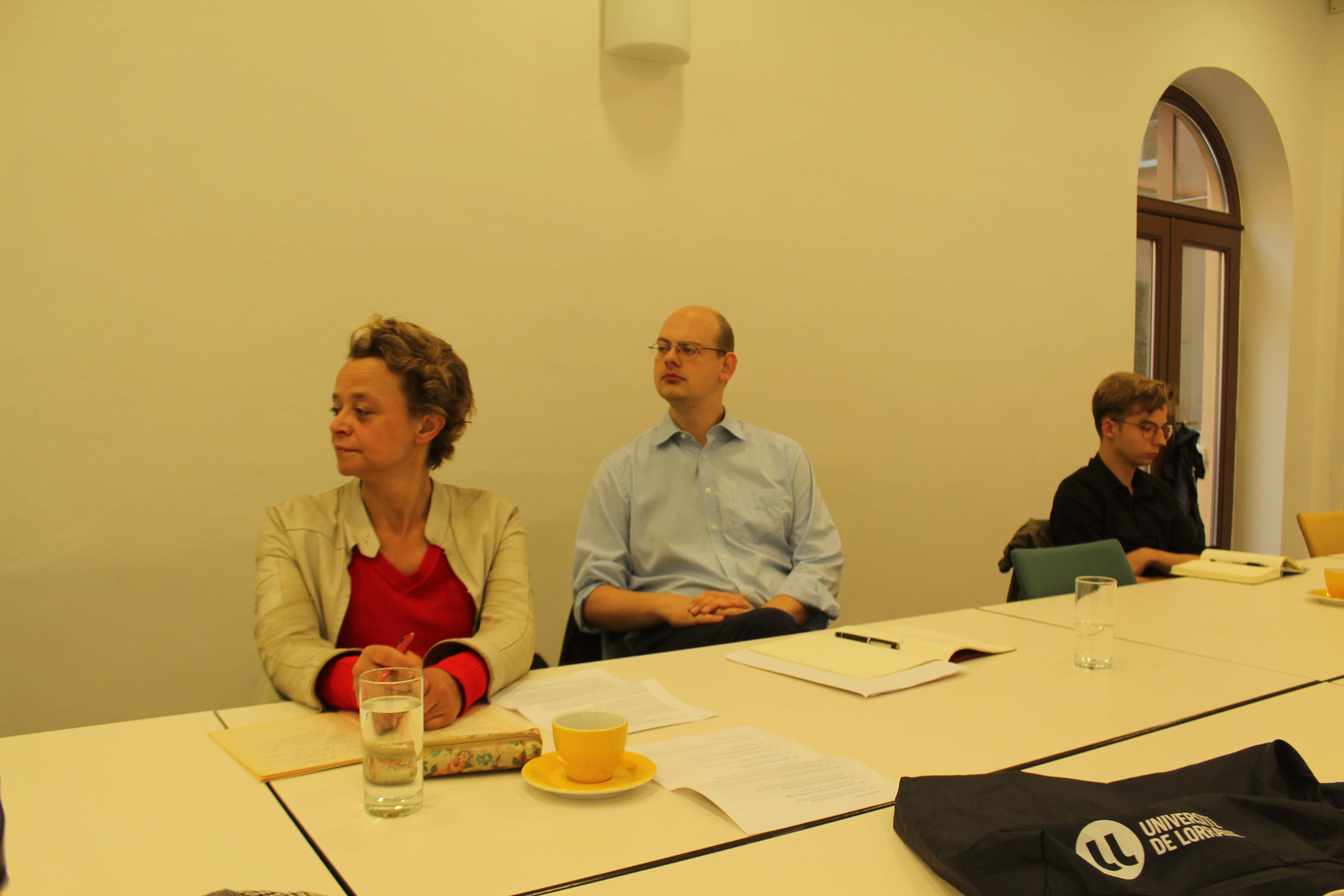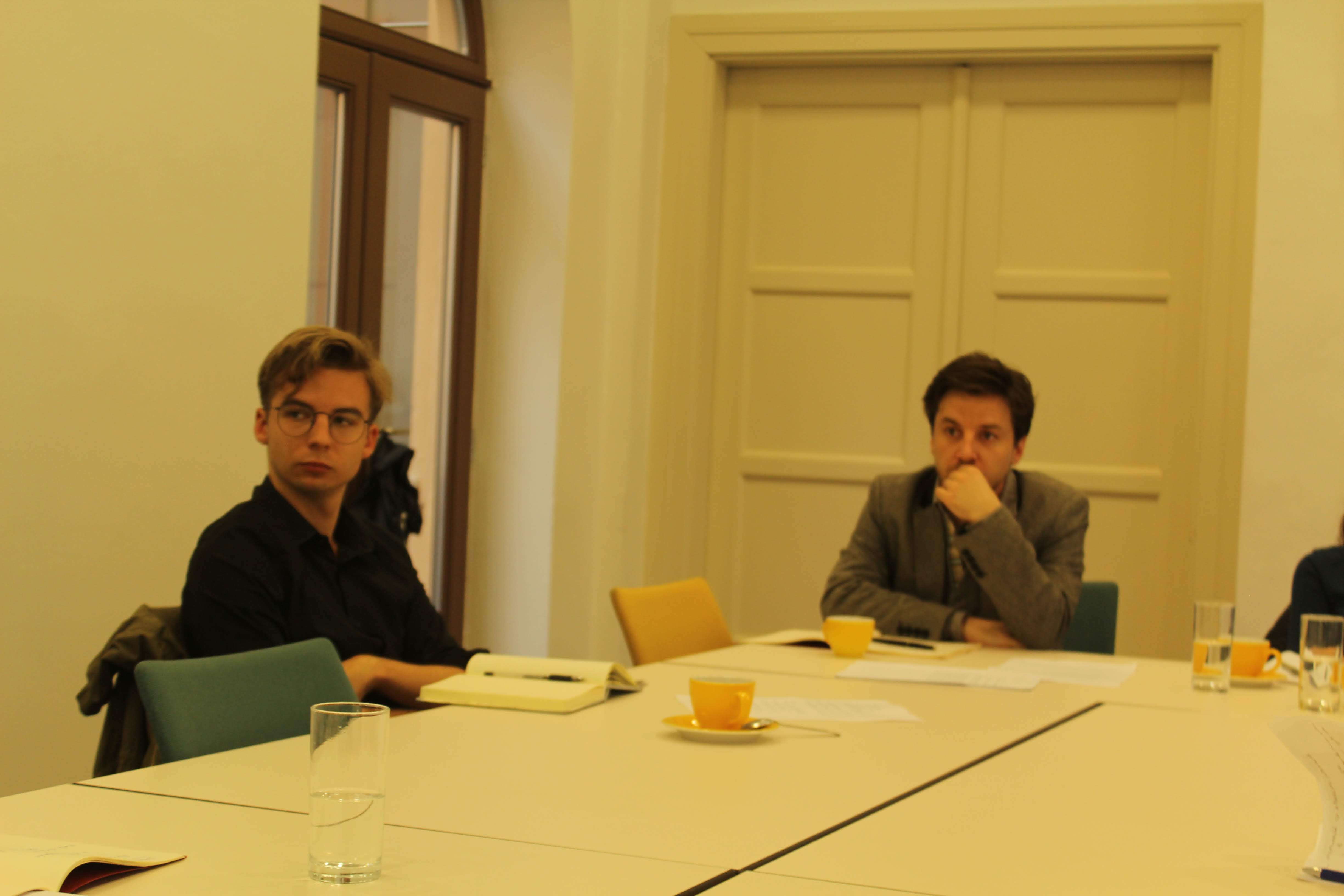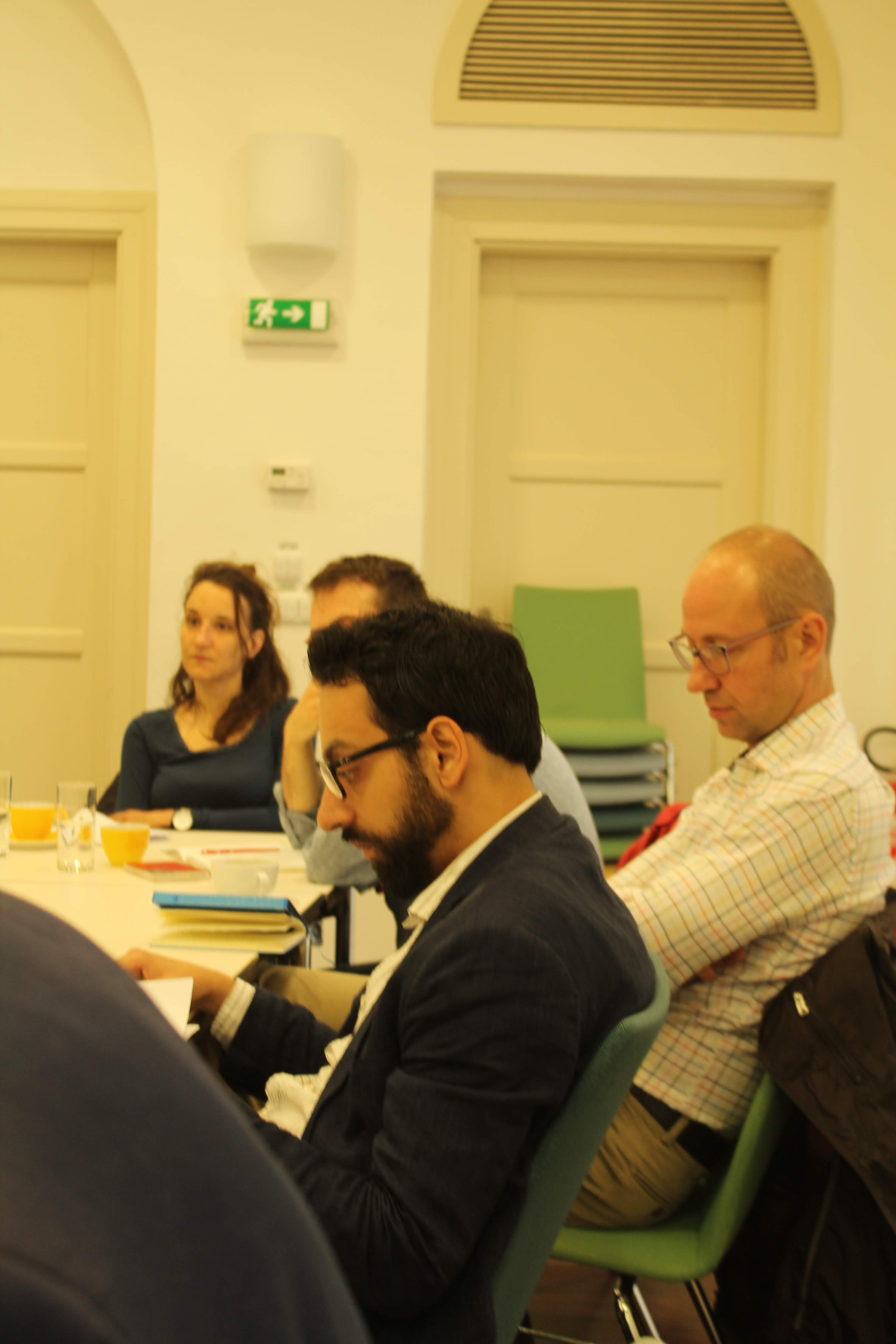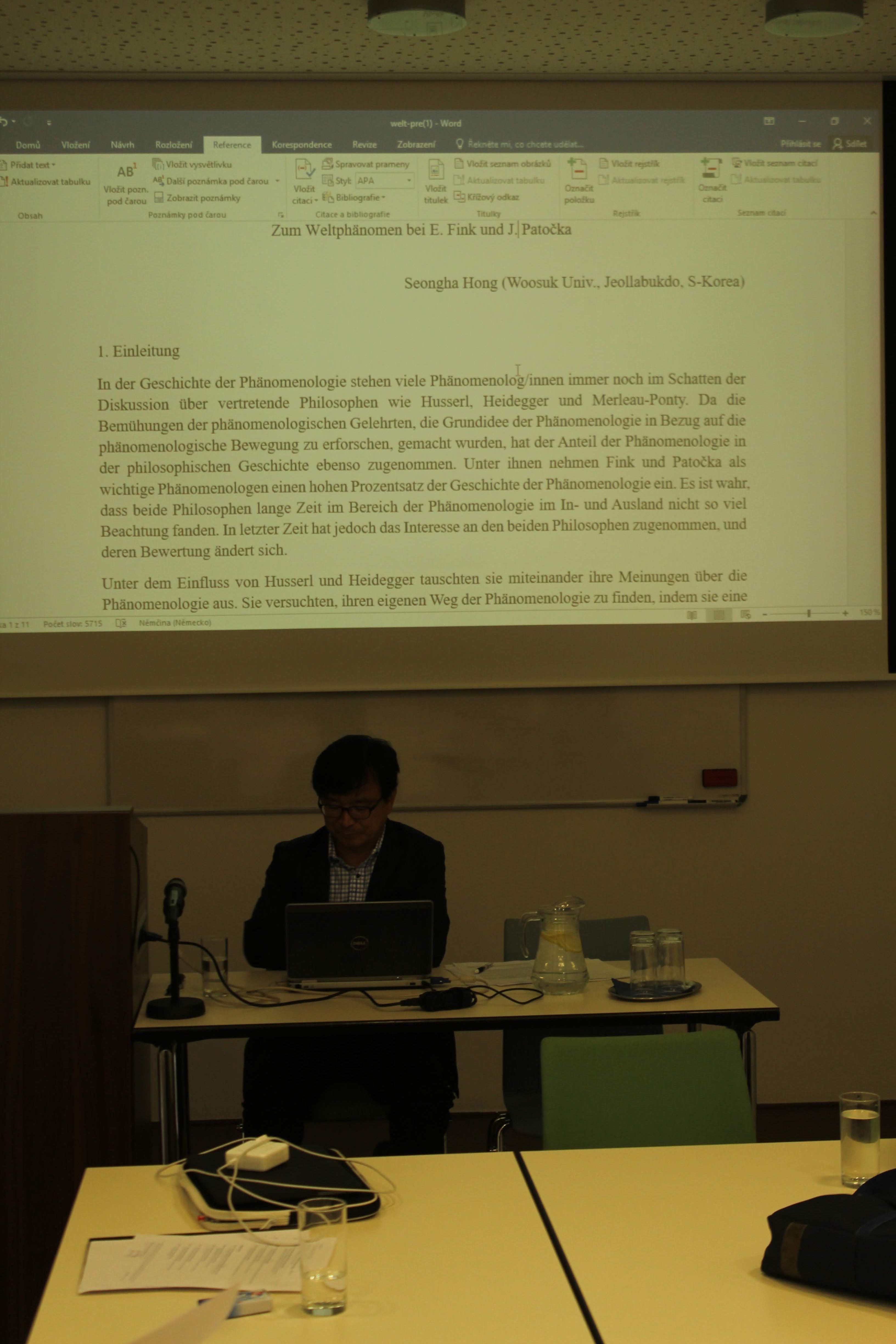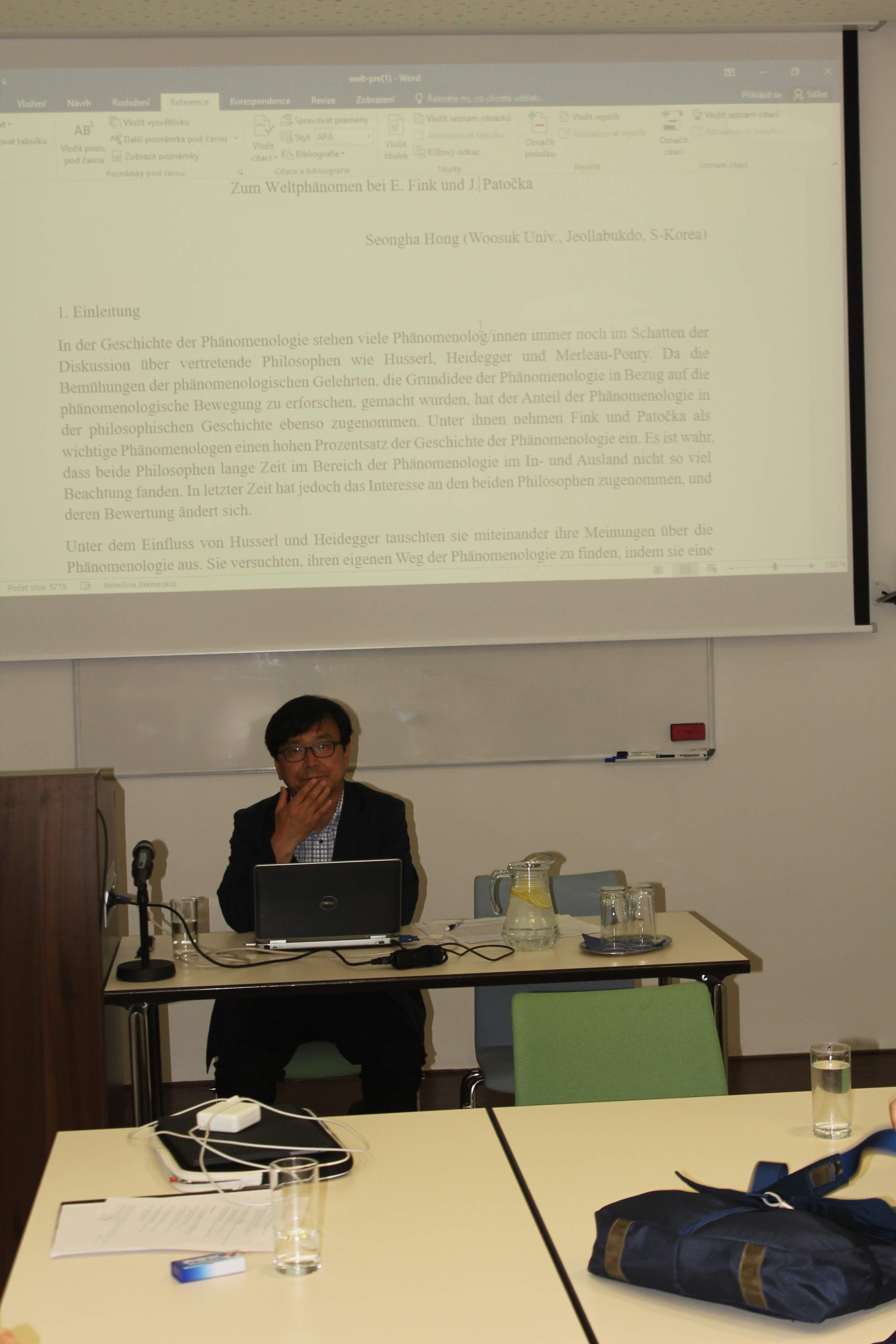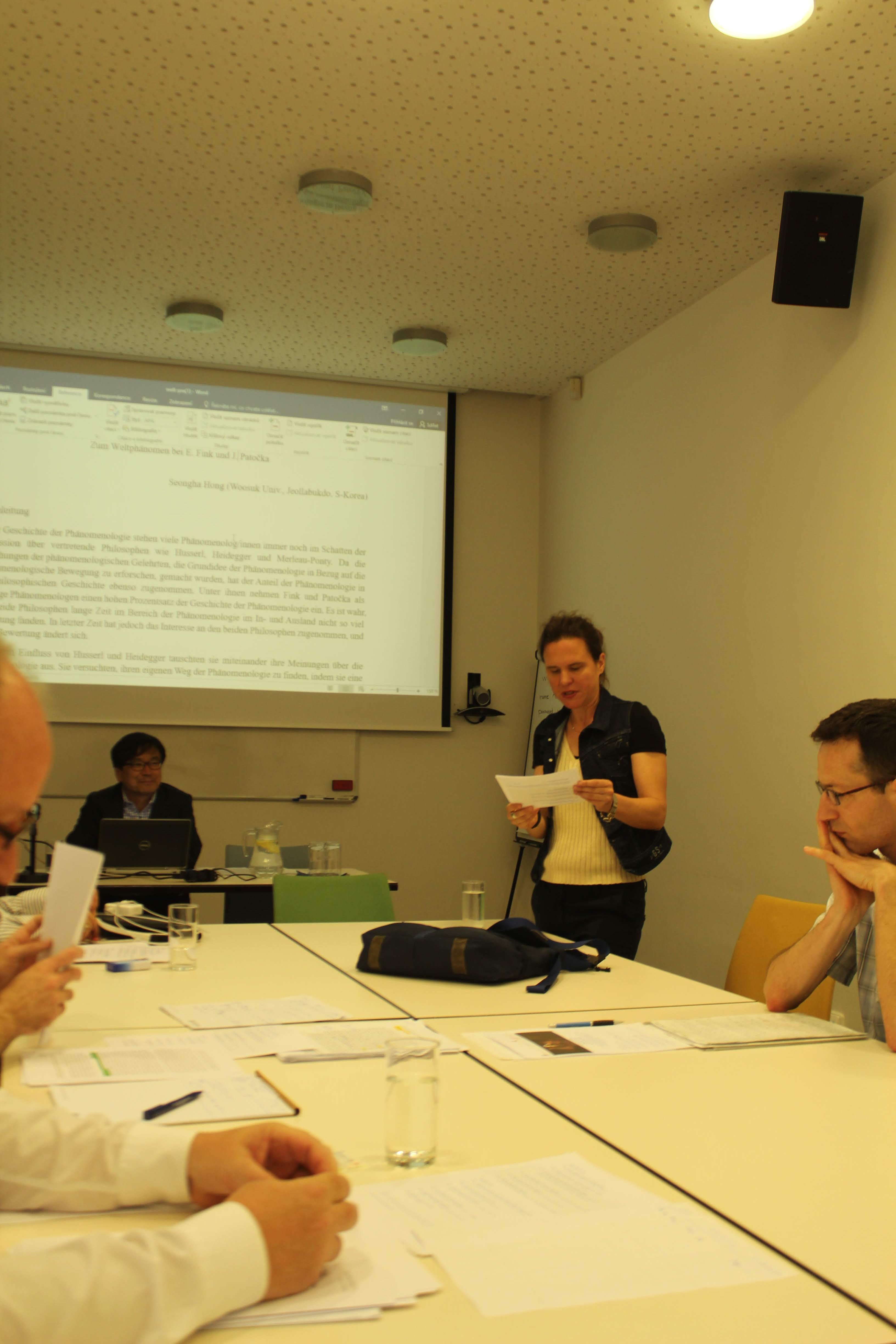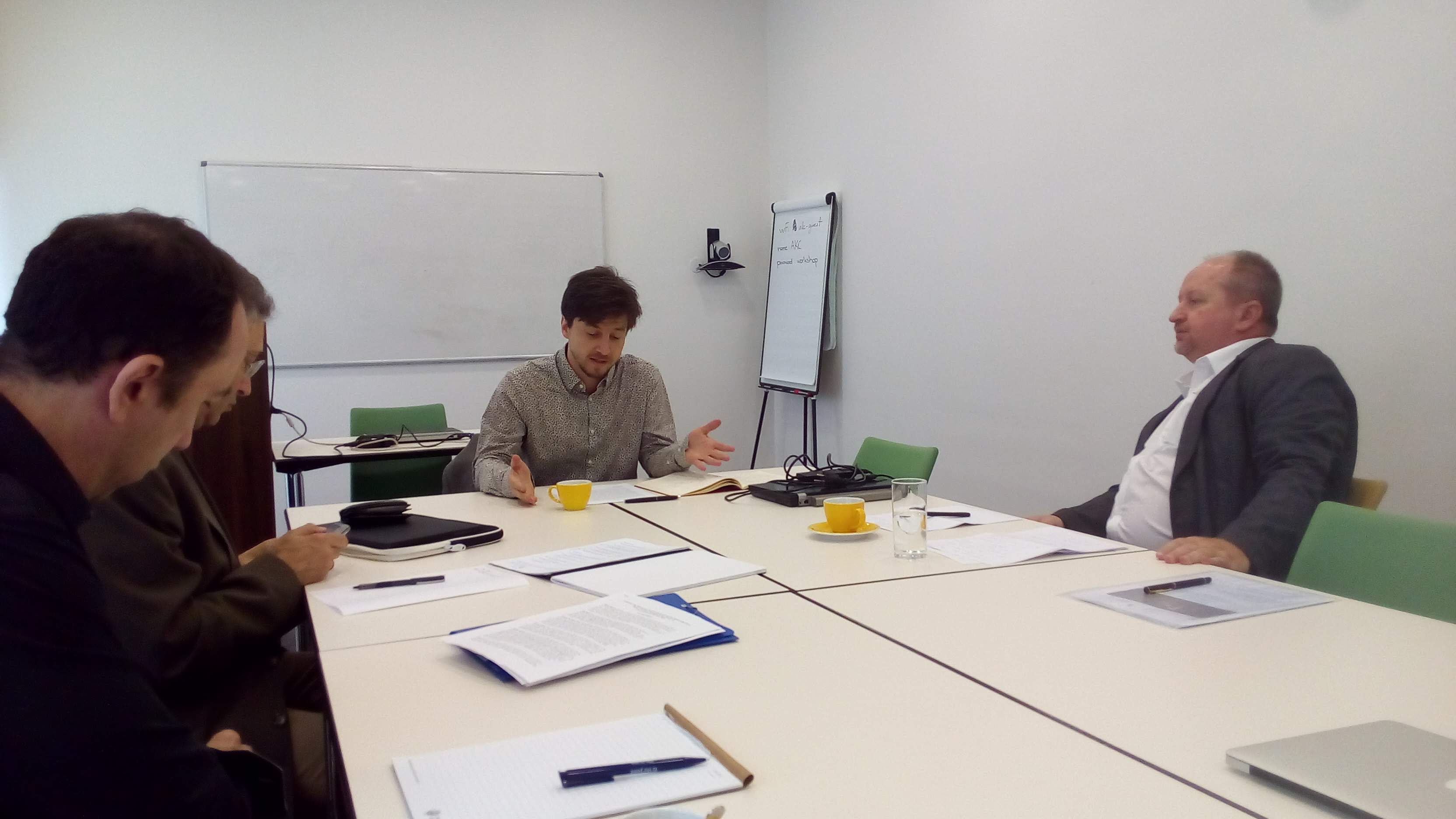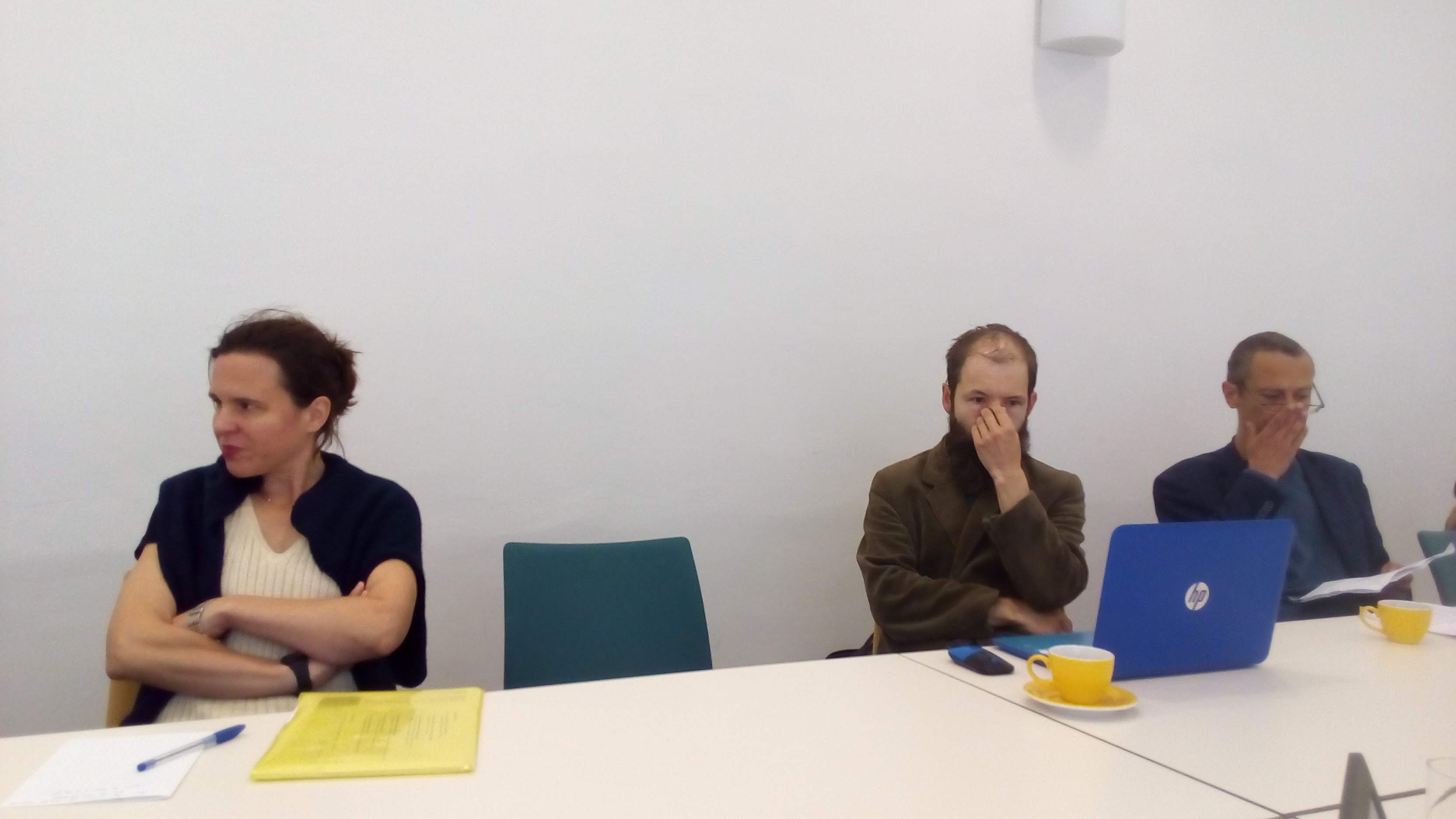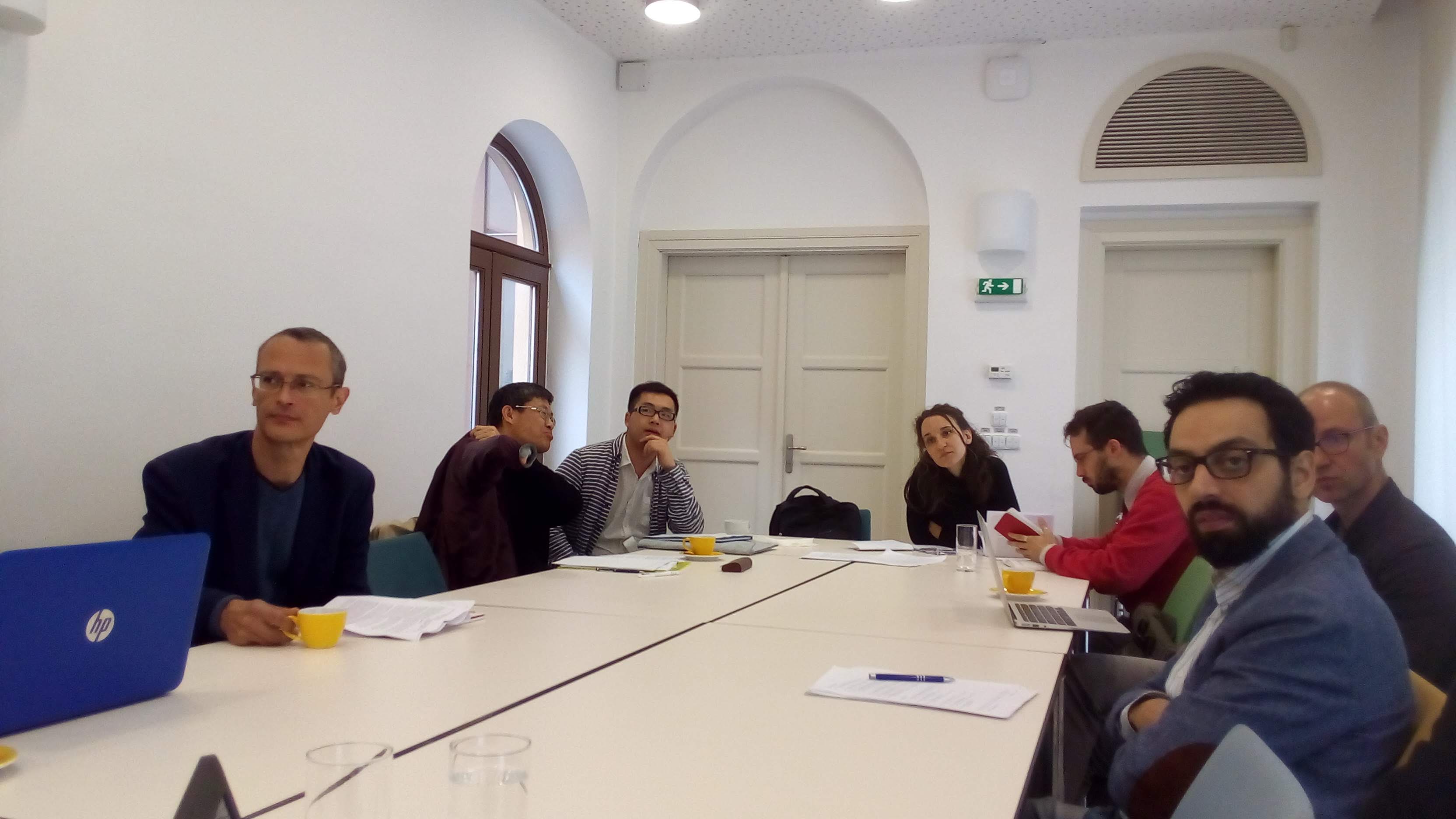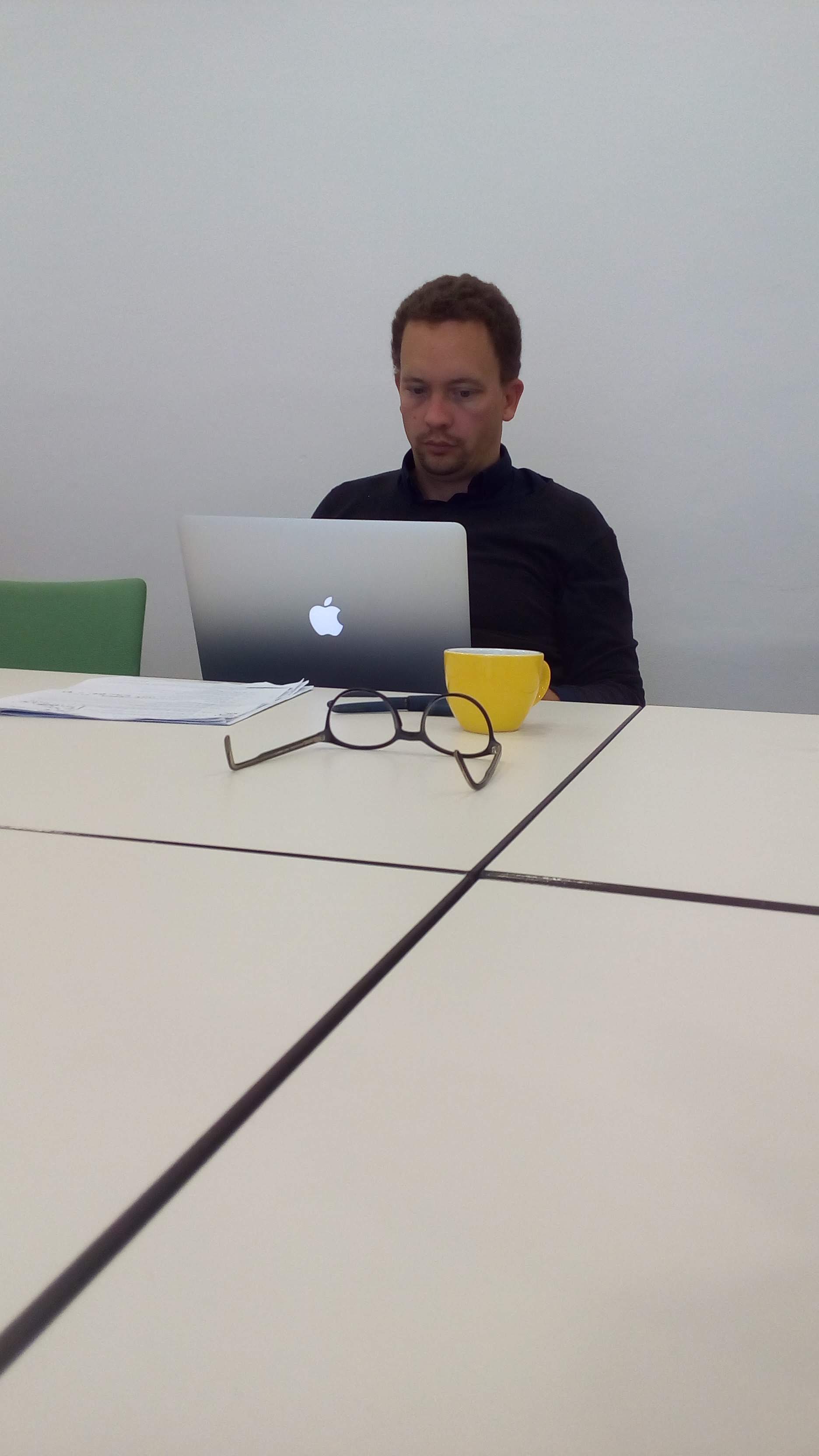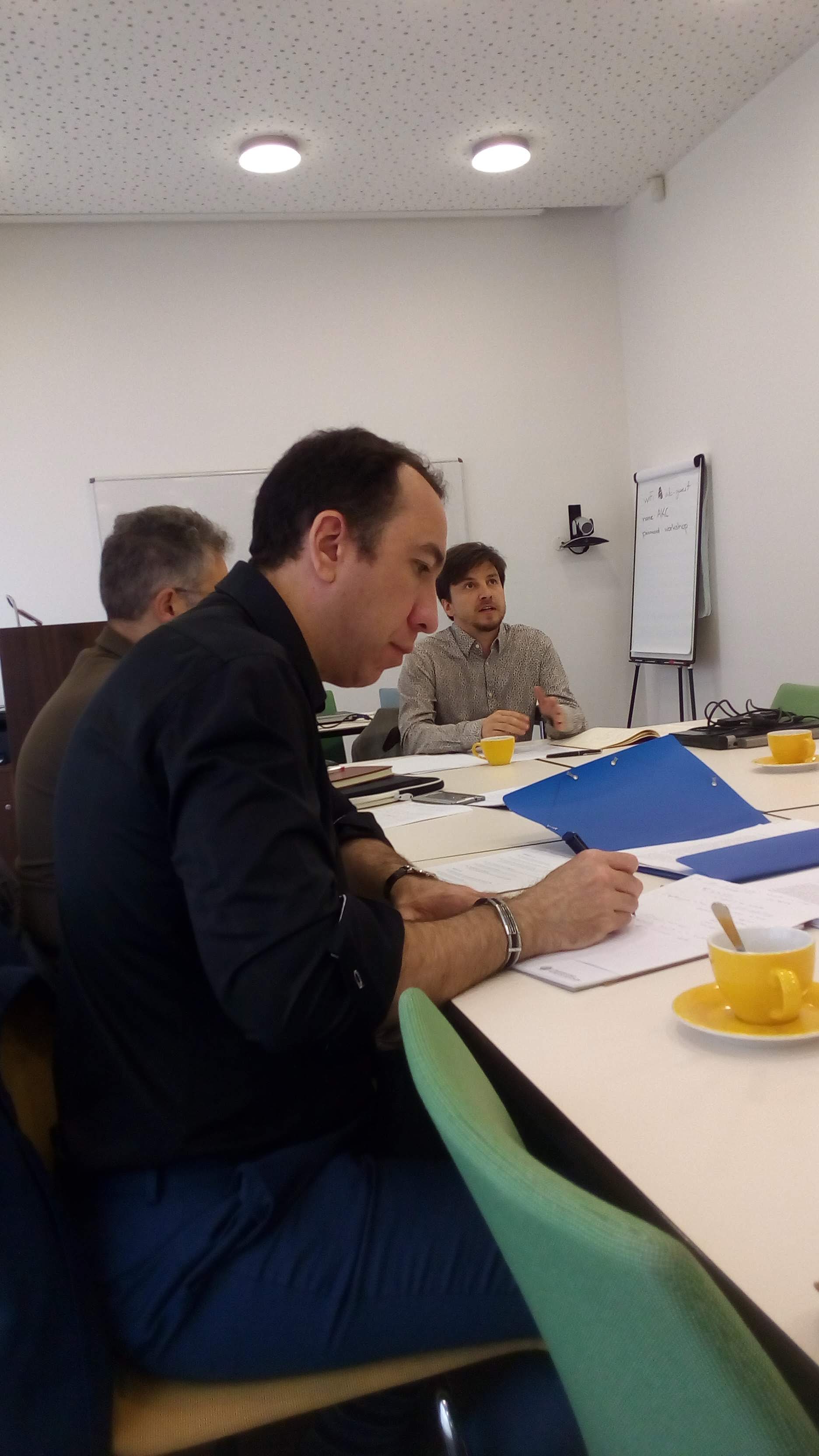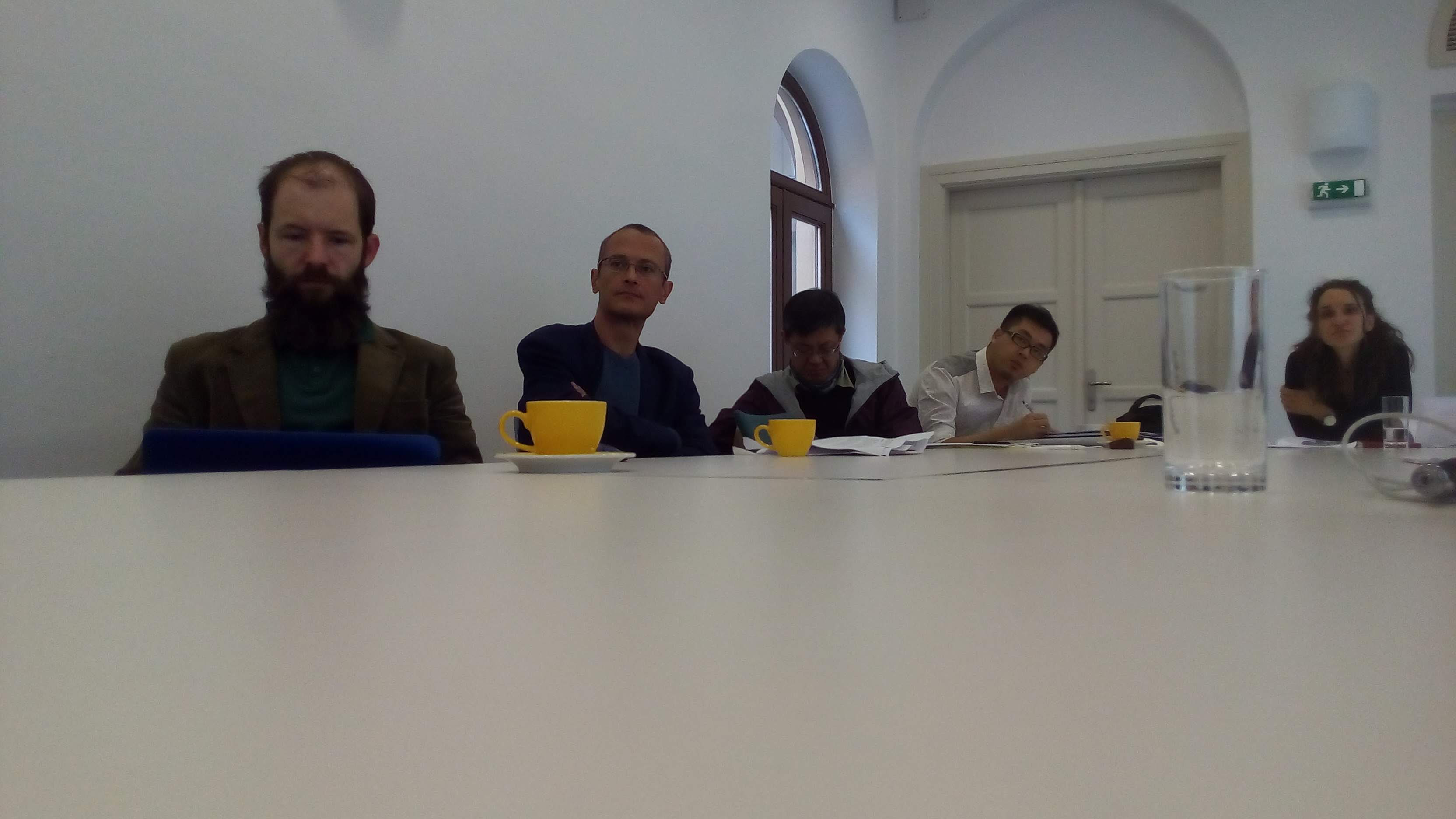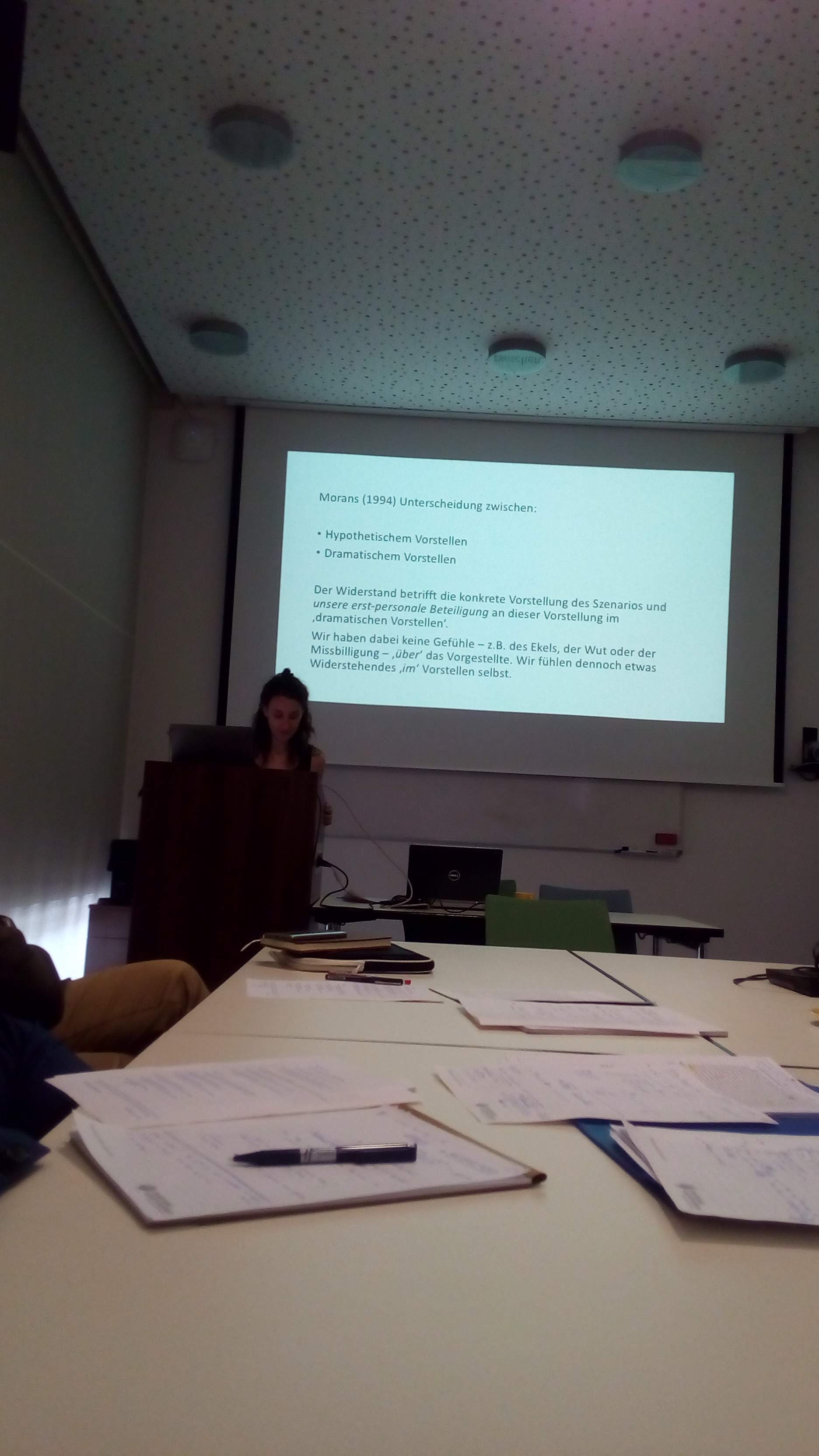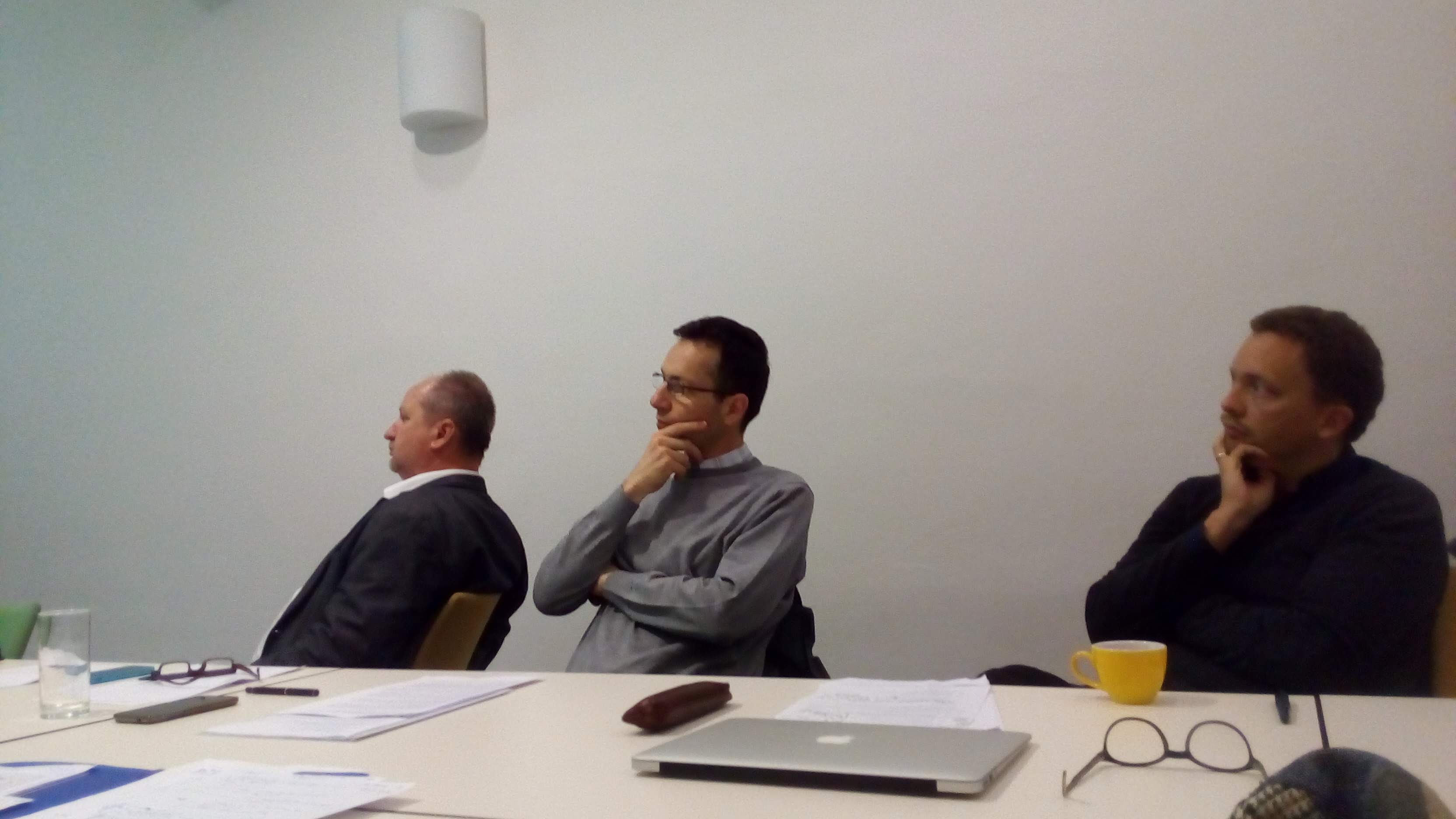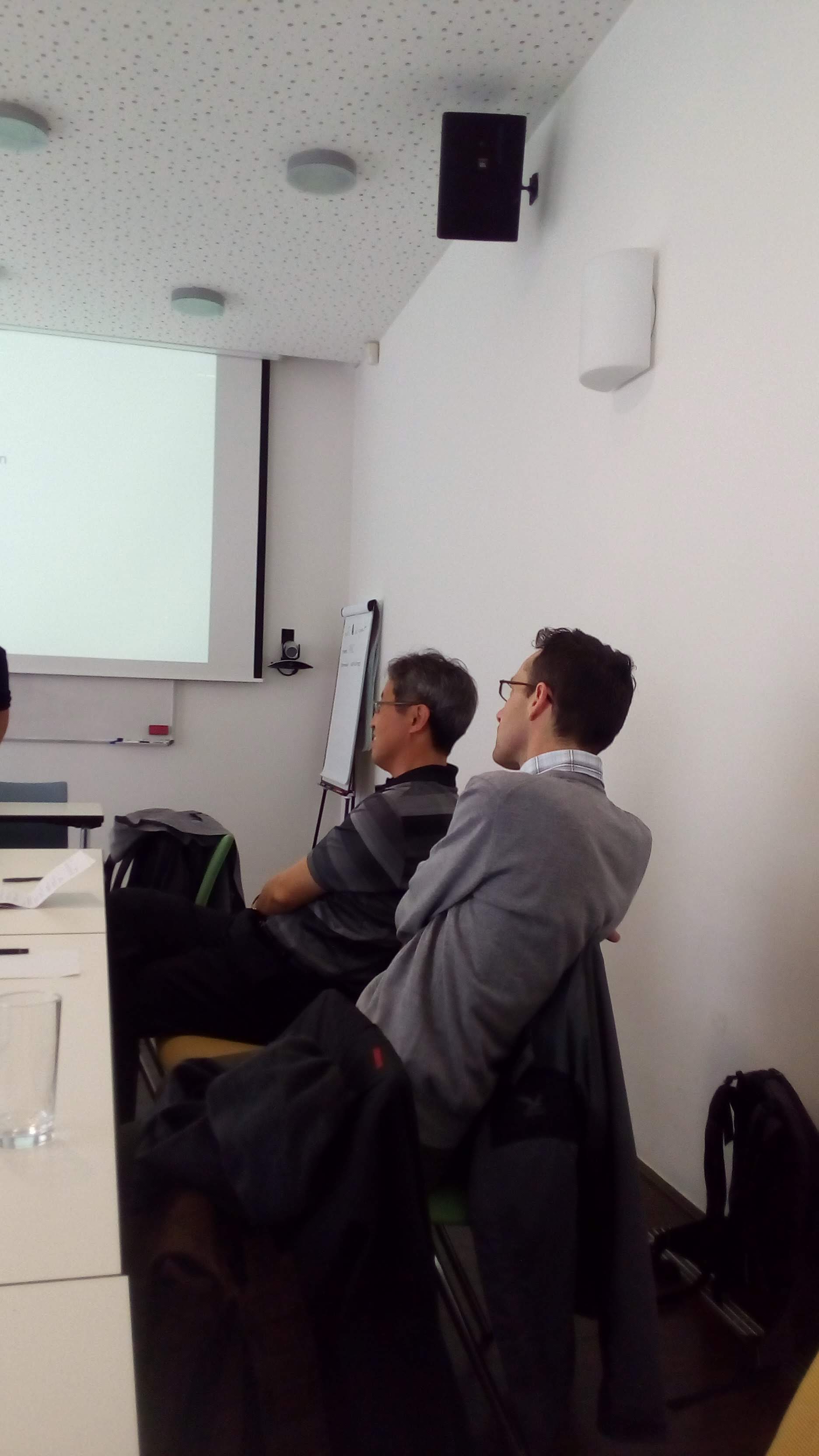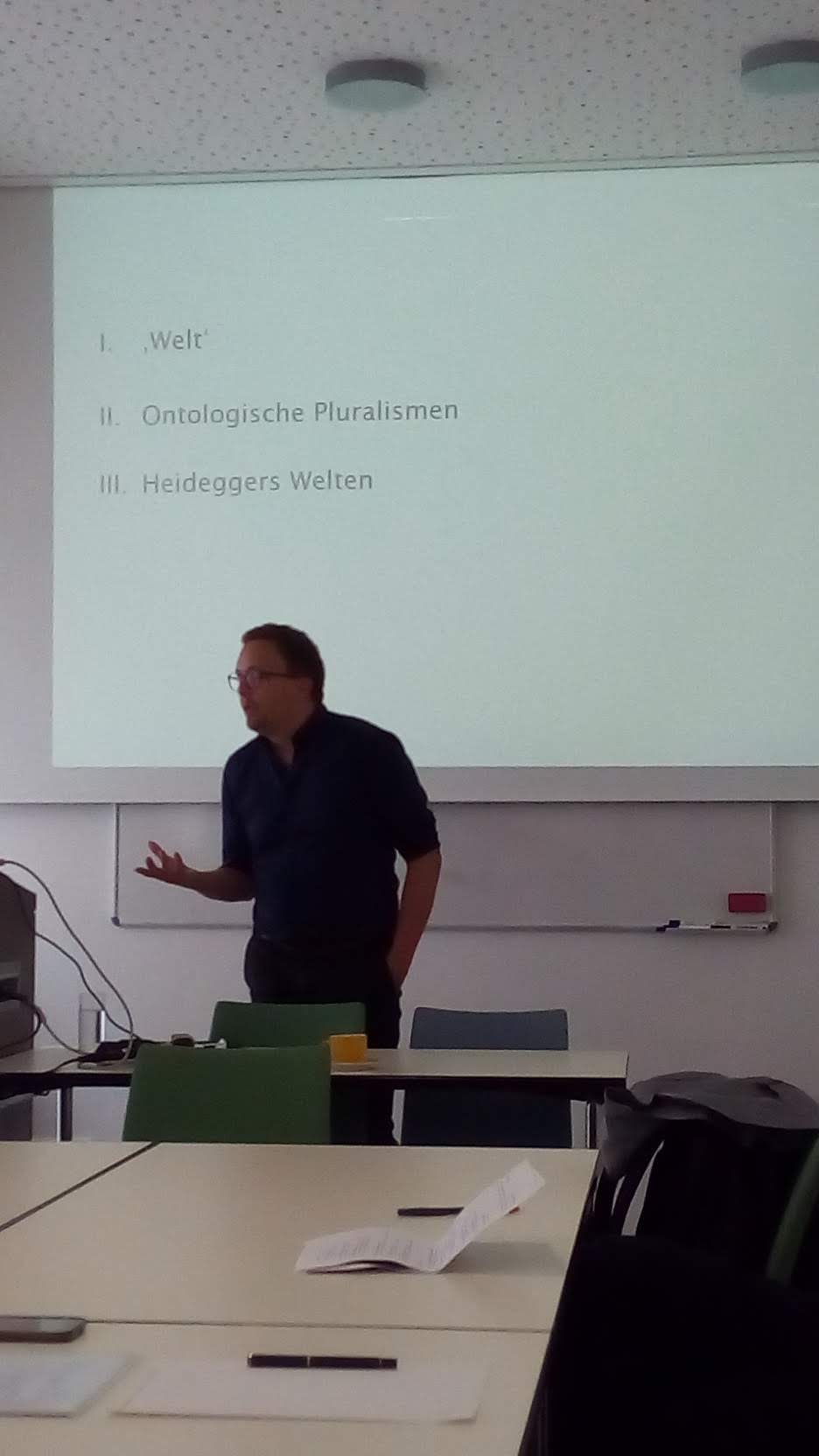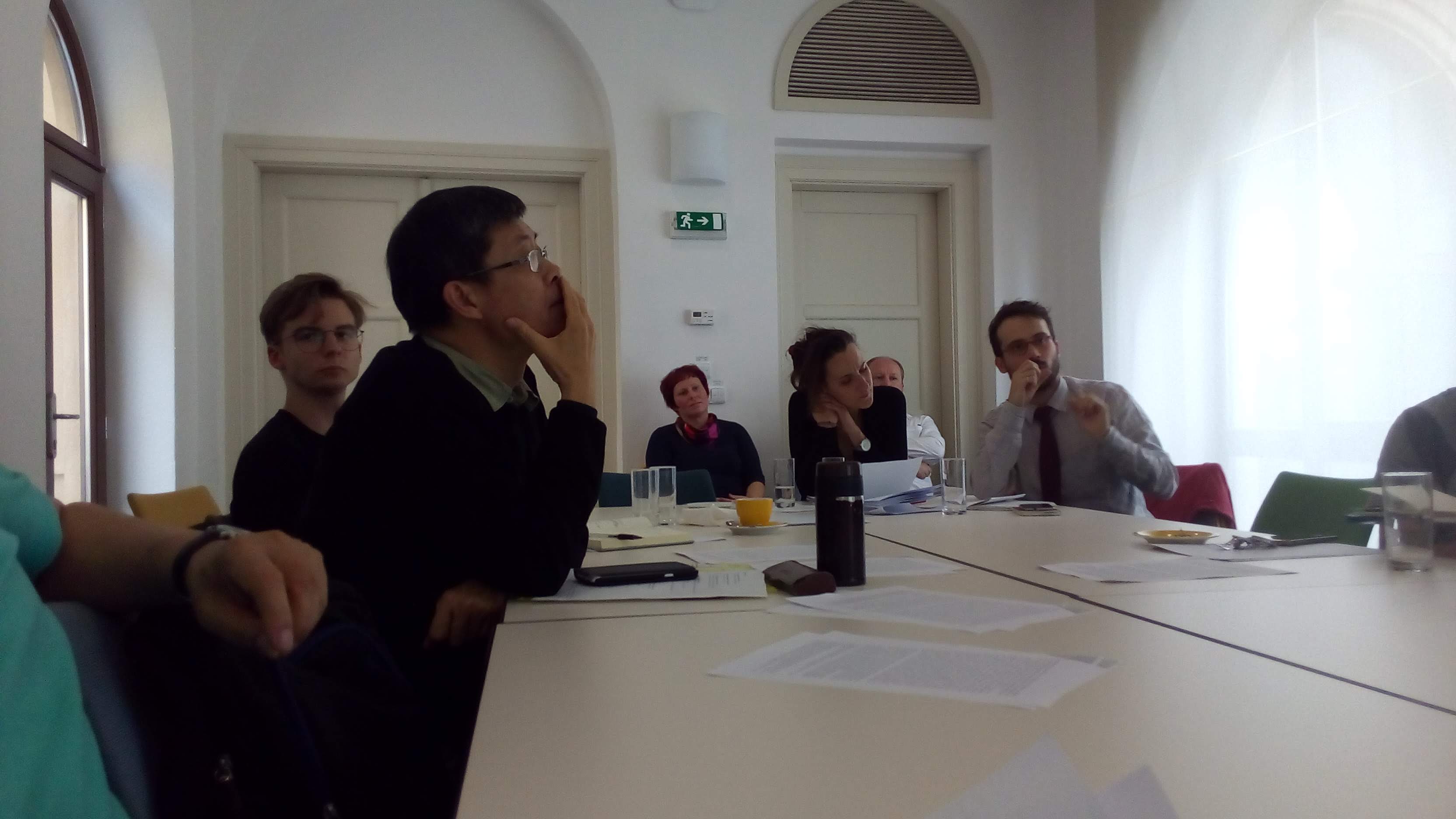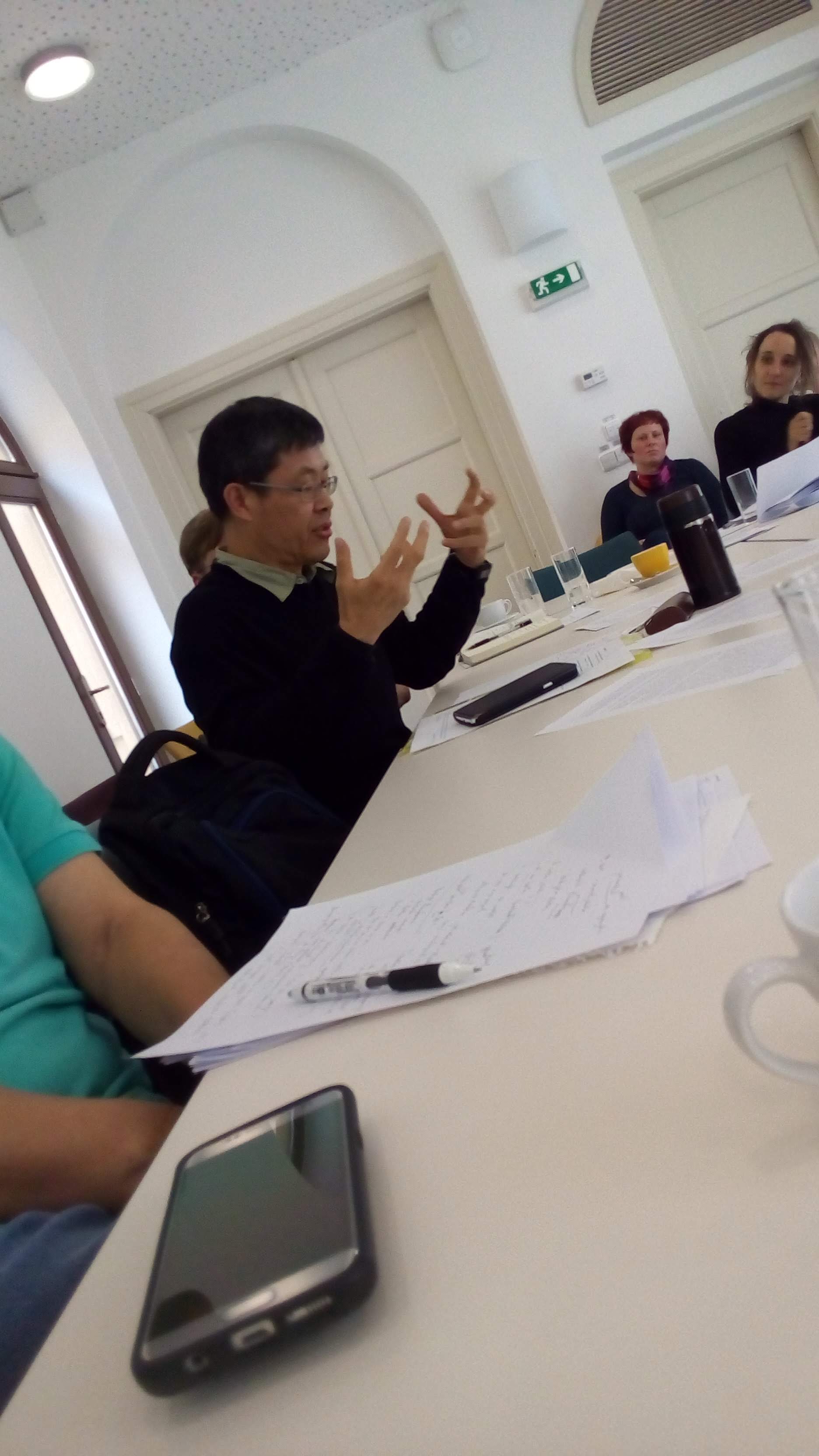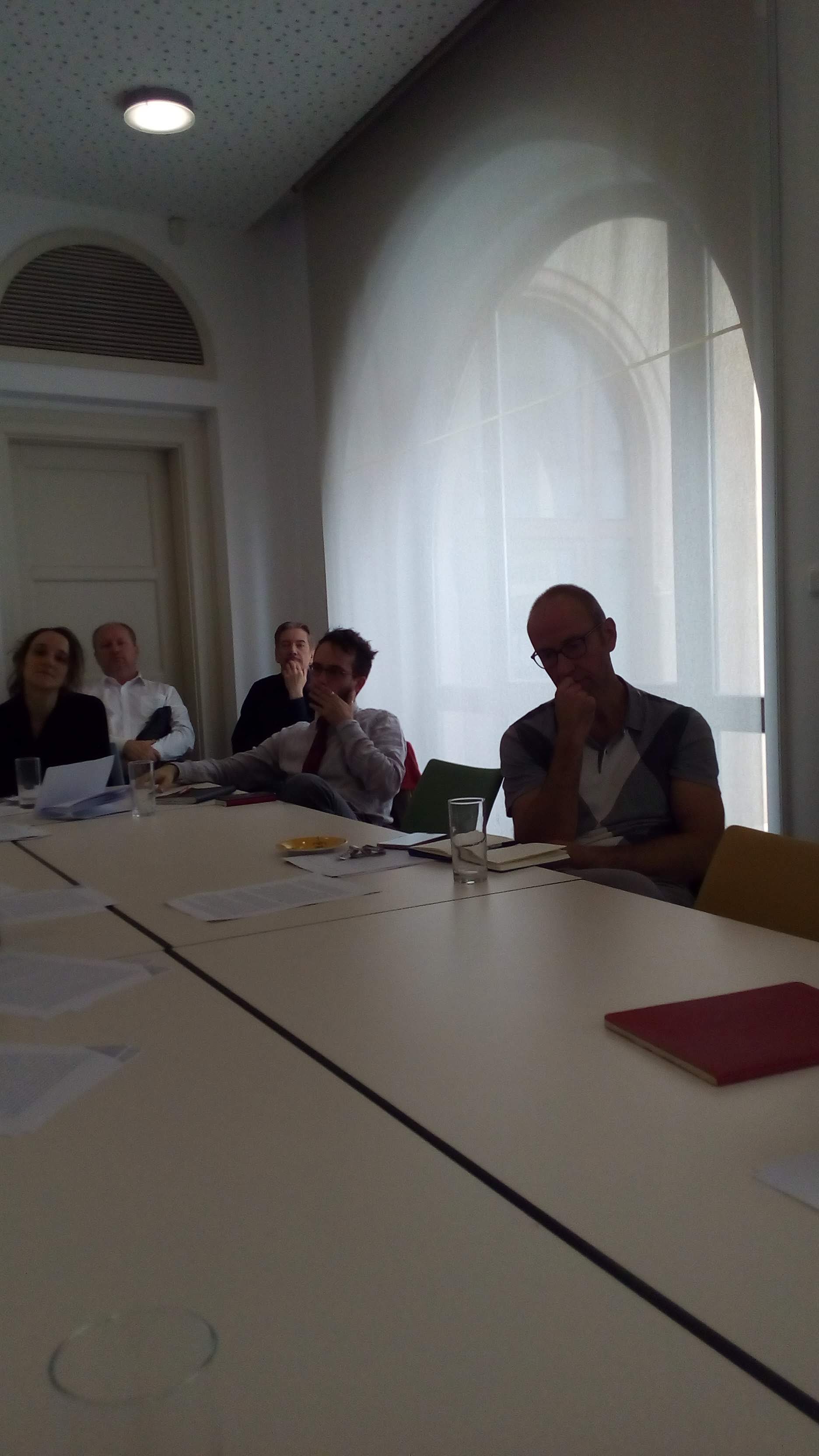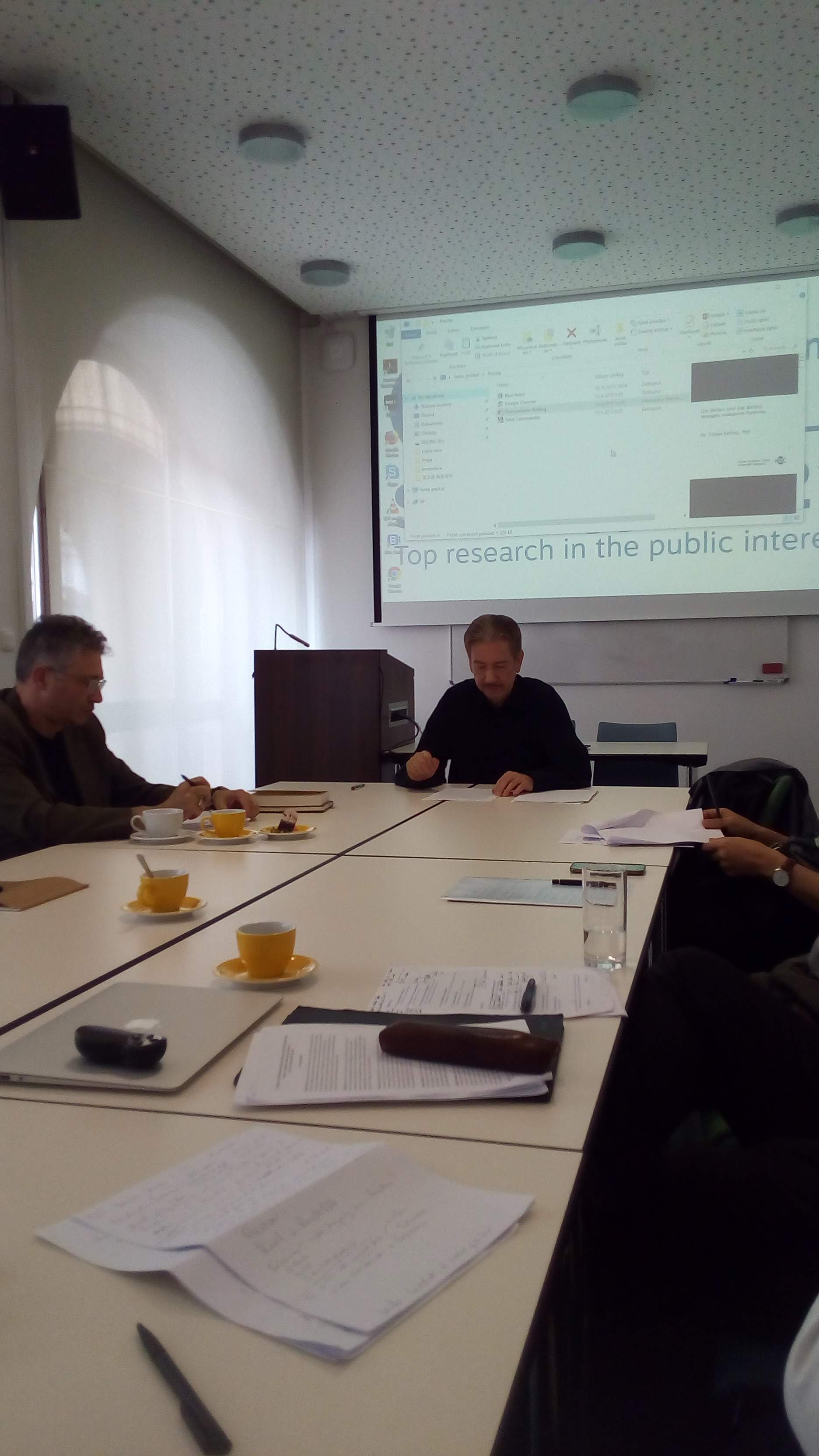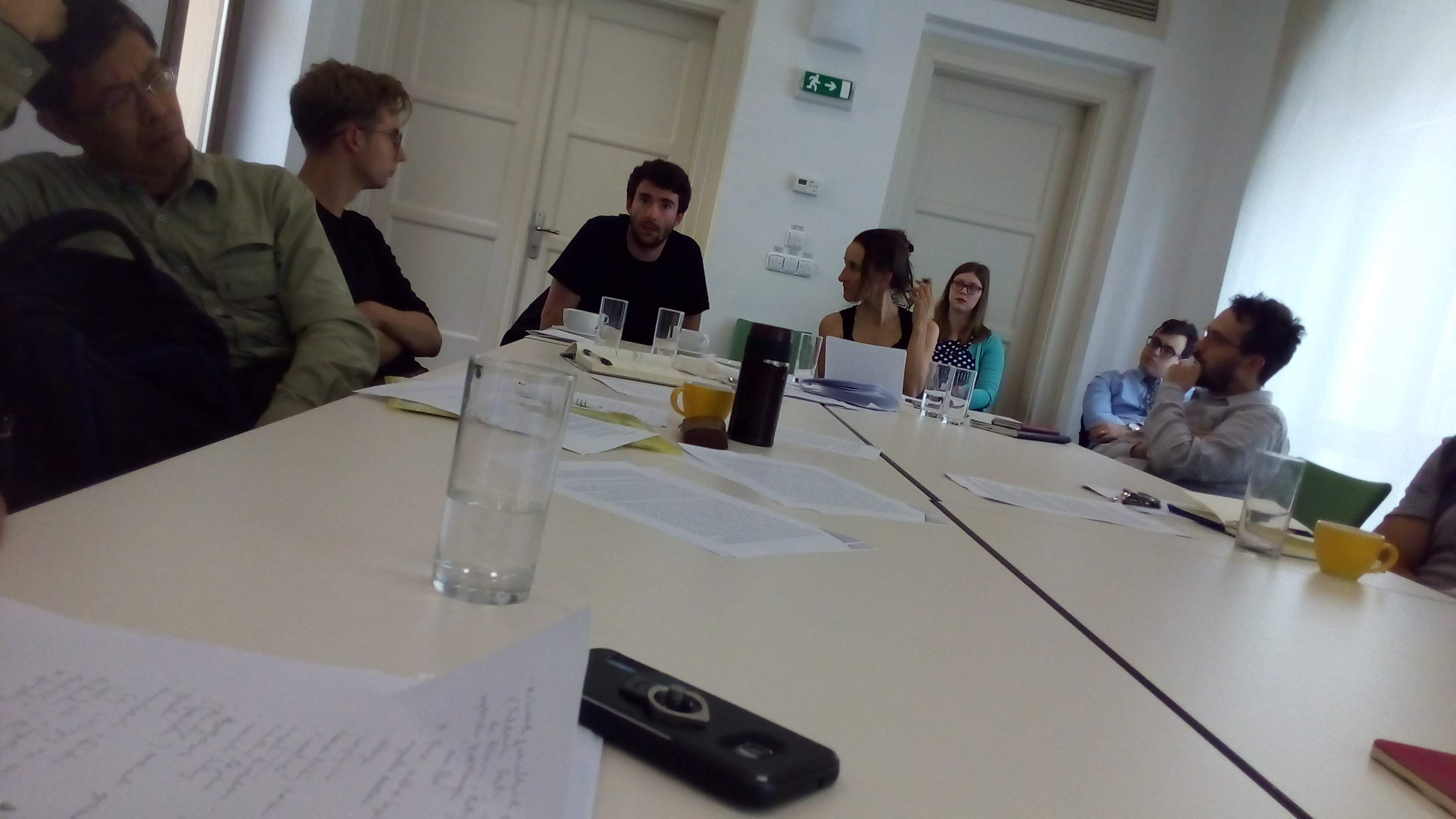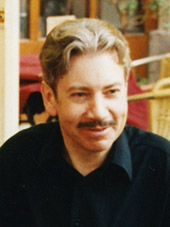
Hans Rainer Sepp
Hans Rainer Sepp (director) arbeitet vor allem in diesem Gebieten: Phänomenologie, Ethik, Ästhetik, Interkulturelle Philosophie, Philosophische Anthropologie. Nach Untersuchungen zu den praktisch-ethischen Konsequenzen der phänomenologischen Veränderung des Weltbezugs am Beispiel des Problems der Grenze, der Bildstruktur und des Lebensbegriffs beschäftigt sich Sepp vor allem mit dem Konzept einer „Philosophischen Europa-Forschung“ und mit einer auf der Grundlage einer erneuerten Phänomenologie der Leiblichkeit erarbeiteten „Oikophilosophie“.
Curriculum Vitae | Selected papers
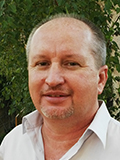
Karel Novotný
Karel Novotný (director) teaches courses in the German and French modules of the Erasmus Master Mundus programme „Europhilosophie“ at the Faculty of Humanities, Charles University in Prague. He is also a lecturer in the bachelor in philosophy programme and in the PhD programme „Philosophie allemande et française“. His current research projects, in which he is involved as an academic and administrative coordinator, include: Programme for the Development Research at Charles University „Phenomenology and Semiotics“; „Philosophical Investigations of Body Experiences“; „Relevance of the Subjectivity for the Questions of the Humanities“.
Curriculum Vitae | Selected papers
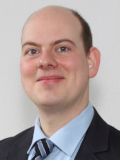
Benjamin Kaiser
Benjamin Kaiser (vice-director) received his doctorate in philosophy in 2018 at the Faculty of Humanities, Charles University (Prague) where he also teaches courses since 2014. In his Ph.D. thesis he investigated the role of human corporality in phenomenology and antique scepticism. From 2006 to 2014 he studied Philosophy, Czech Studies and Social Sciences in Prague, Leipzig and Berlin. His research interest includes Philosophical Anthropology, Philosophy of the Body, Phenomenology, Philosophy of Arts, Medias and Ethics. He published several papers and a monograph, “Zeit und Leid. Zur Phänomenologie des ‚Es war‘ von Nietzsche bis Kundera“ (2016). A selection of his writings can be found at his Academia Page.
Curriculum Vitae | Selected papers

Martin Nitsche
Martin Nitsche (vice-director) received PhD in philosophy in 2007 from the Charles University Prague. In 2016 he was named an associate professor at the Charles University in Prague (habilitation). 2016/17 he worked as a Fulbright Visiting Researcher at the University of California, Los Angeles, Department of Political Science. His research focuses on phenomenology, phenomenological topology (Heidegger, Merleau-Ponty), philosophy of art, aesthetics, political philosophy, theory of media, phenomenology of religion. Nitsche formulated the “transitive-topological model of phenomenology” (see in his recent book Methodical Precedence of Intertwining. An Introduction to a Transitive – Topological Phenomenology, Königshausen u. Neumann, 2018). He also published Die Ortschaft des Seins. Martin Heideggers phänomenologische Topologie (2013), 3 other books in Czech, and more than 30 papers or chapters. He is the editor of a volume Image in Space. Contributions to a Topology of Images (in a phenomenological series Libri Nigri, Bautz Verlag, 2015).
Curriculum Vitae | Bibliography | Selected papers
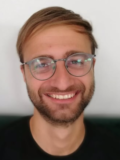
Lutz Niemann
Lutz Niemann is a PhD student at the Faculty of Humanities at Charles University in Prague. He has studied Philosophy, English and Education (B. Ed.) in Mainz and Valencia and Philosophy (MA) in Prague. His research is focused on exploring the human condition as a relation of sense and not-sense. Thus, corporeality, selfhood and personhood, the imaginary and the Real are focal points of interest. In his dissertation, Philosophie der Leerstellen, he is investigating existence as an in-between of emptiness and fullness by scrutinizing the phenomena of hesitating, waiting and boredom. Phenomenology, Philosophy of Stories, Hermeneutics and Intercultural Philosophy as well as literary sources are applied. As part of the research project Eugen Fink and French phenomenology he is currently working on the cosmology of the late Eugen Fink and its relation to (contemporary) French phenomenologists. He has last published a monography Die Existenz als Jagd – Eine Verfolgung der Grenzen des Sinns (2021).
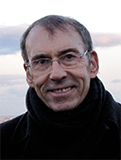
James Mensch
James Mensch is Professor of Philosophy at the Faculty of Humanities. His main areas of research are phenomenology and its contemporary applications. He has lectured widely both in America and Europe and serves on a number of editorial and research boards. He is the editor of the book series, Body and Consciousness, with Ibidem Press (see https://www.ibidem.eu/de/blog/BaC/ for details). His latest book, Selfhood and Appearing, The Intertwining was published by Brill in 2018. In 2016, he published Patočka’s Asubjective Phenomenology: Toward a New Concept of Human Rights with Königshausen & Neumann. The previous year (2015), his monograph, Levinas’ Existential Analytic, A Commentary on Totality and Infinity, was published by Northwestern University Press. Beyond this, ten previous books of his have been published by university presses.
Curriculum Vitae | Selected papers

Hilmar Schmiedl-Neuburg
Hilmar Schmiedl-Neuburg is Privatdozent for Philosophy at the Department of Philosophy of the University of Kiel. In his research and teaching he focuses on questions of phenomenology and hermeneutics, existential philosophy, German idealism as well as critical theory and poststructuralism. He also has a vivid interest in platonism and in psychoanalysis. In 2016 he was visiting professor in the Department for German and French Philosophy (Erasmus Master Mundus programme „Europhilosophie“) at the Faculty of Humanities, Charles University in Prague. In 2018 he organized together with Benjamin Kaiser a joint conference of the Philosophy departments of Kiel and Prague on “Philosophy and Literature” in Prague. He joins SIF Praha as a visiting fellow in March 2019.
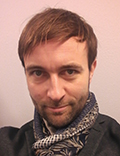
Chistophe Perrin
Christophe Perrin is a former postdoctoral researcher of the Belgian National Funds for Scientific Research (FNRS) at the Catholic University of Louvain, where he is today scientific collaborator. After a PhD at Paris-Sorbonne University under the supervision of Prof. Jean-Luc Marion and after having passed an accreditation to direct research in France (HDR/Habilitationsschrift), he now devotes himself to writing a few books on general philosophy. On a proposal from the Académie française, the Institut de France awarded to him the François-Victor Noury Prize in June 2021.
Curriculum Vitae | Selected papers
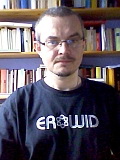
Vít Pokorný
Vít Pokorný is an external teaching assistant at the Univesity of J. E. Purkyně, Ústí nad Labem and a doctoral student at the Faculty of Humanities, Prague. He specializes in anthropology of consciousness, enactive cognitive science and phenomenology with international conference experiences. He participates in the „Corona Culturae“ project at UJEP Ústí nad Labem, and is a research colaborator in the GAČR grant application called „Precedence of Intertwinnig: methodology and application“.
Curriculum Vitae | Selected papers
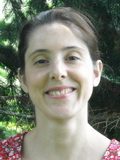
Annabelle Dufourcq
Annabelle Dufourcq Lorem ipsum dolor sit amet, consectetur adipisicing elit, sed do eiusmod tempor incididunt ut labore et dolore magna aliqua. Ut enim ad minim veniam, quis nostrud exercitation ullamco laboris nisi ut aliquip ex ea commodo consequat. Duis aute irure dolor in reprehenderit in voluptate velit esse cillum dolore eu fugiat nulla pariatur. Excepteur sint occaecat cupidatat non proident, sunt in culpa qui officia deserunt mollit anim id est laborum. Lorem ipsum dolor sit amet, consectetur adipisicing elit, sed do eiusmod tempor incididunt ut labore et dolore magna aliqua.
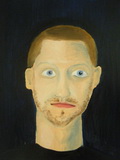
Jan Bierhanzl
Jan Bierhanzl is a postdoctoral researcher at the Institute of contemporary philosophy of the Czech Academy of Sciences and assistant professor of philosophy and french language at Charles University (Prague). His main research interests are contemporary French philosophy, Emmanuel Levinas, ethics of language, ethics and politics between phenomenology and structuralism (mainly Levinas and Foucault).
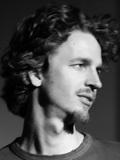
Jan Puc
Jan Puc finished his Ph.D. in Philosophy in 2017 at the Faculty of Arts, Charles University in Prague. His specialization is phenomenology of corporeality, questions concerning human individuality and self-understanding and nature of creativity. He is also a co-editor of a book on Nietzsche, published 2011. Recently, he focuses his research on the creative dimension of human expressivity and mutual overlapping of philosophy and art.
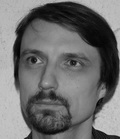
Jan Černý
Jan Černý has M.A. degrees in Czech and Latin Philology and Protestant Theology. Currently, he is working on his doctoral thesis entitled Subjectivity in the material phenomenology of Michel Henry, supervised by Karel Novotný. His specialization is phenomenology, hermeneutics, political philosophy, protestant theology and post-war Czech literature. He teaches philosophy at the Charles University in Prague, Faculty of Protestant Theology and has worked at the Institute of Czech Literature, within the Academy of Sciences of the Czech Republic.
Curriculum Vitae | Selected papers
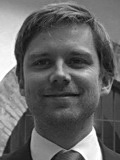
Patrick Flack
Patrick Flack is a post-doctoral researcher in Philosophy of Language and Intellectual History, with a special focus on Central and Eastern Europe and a strong background in semiotics, literary theory, early phenomenology and the history of linguistics. His current project, “The Prague School at the Crossroads of Structuralism and Phenomenology”, is devoted to the history of structuralism during the interwar. He also is the managing director of sdvig press, an open access editorial platform dedicated to supporting the dissemination and linking of knowledge in the Humanities between Eastern, Central and Western Europe.
Curriculum Vitae | Selected papers
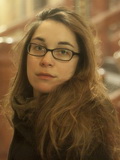
Caterina Di Fazio
Caterina Di Fazio is a PhD student at Université Paris 1 Panthéon-Sorbonne and at Karlova Univerzita v Praze. She graduated at Università degli Studi di Bologna and Université Paris 1 Panthéon-Sorbonne in 2013. She is also a research affiliate at Murdoch University, Perth, Western Australia. The aim of her research is to show the intrinsic connection between phenomenology (Merleau-Ponty and Patočka) and political philosophy (Machiavelli and Hobbes). Her Ph.D. thesis is centered on both a Phenomenology of the Political Space and a Phenomenology of Movement.
Curriculum Vitae | Selected papers
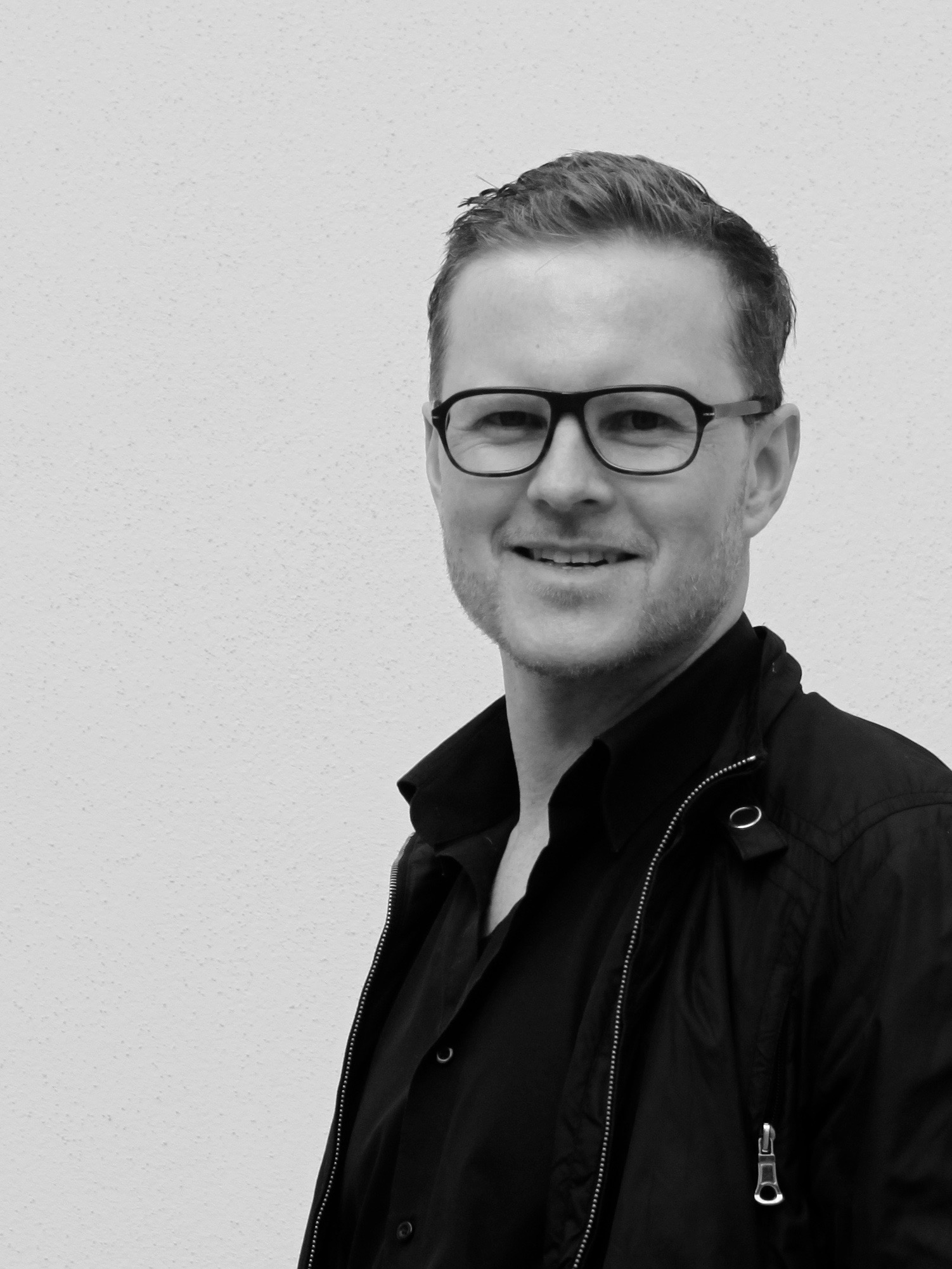
Alexander Berg
Alexander Berg studied philosophy, psychology and art-history at TU Dresden, Sorbonne Paris and University of Florence. After research stays at the Wittgenstein Archives (University of Bergen), Charles University in Prague, Wren Library of Trinity College (University of Cambridge) and University of Chicago he defended the Ph.D. thesis “Absolutes Wissen und Grundlose Gewissheit – Hegel und Wittgenstein” at TU Dresden and Charles University in Prague (Cotutelle). He published about Wittgenstein, Hegel, Heidegger and Ch. Taylor and teaches at the Faculty of Humanities, Charles University in Prague.
Curriculum Vitae | Selected papers
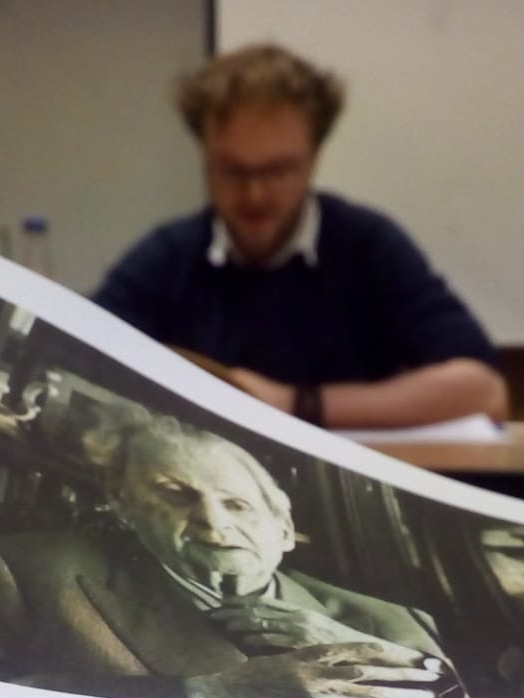
Marius Sitsch
Marius Sitsch is currently a PhD-student at Charles University in Prague and at the University of Wuppertal. His research focuses on the connection between the epochē and alterity and on the practical utility of the epoché as a philosophical-therapeutic practice. He is a former student of the Erasmus-Mundus-Masterprogram „Zeitgenössische Probleme Deutscher und Französischer Philosophien/Philosophies allemandes et française: enjeux contemporains“, during which he studied at Charles University, Université catholique de Louvain and Université Toulouse–Jean Jaurès. Besides his studies, he was chief editor of the philosophical journal AUC Interpretationes (Acta Universitatis Carolinae Interpretationes Studia Philosophica Europeanea) between 2018 and 2022. He published the monography Liebe und Ein-samkeit. Komplementäre Gegebenheitsweisen des Anderen nach Edith Stein und Jean-Paul Sartre (Traugott Bautz GmbH, 2019) and several articles and contributions, among others about the givenness of the other in texts, the experience of epoché while reading, and the Oikology of Hans Rainer Sepp. Forthcoming is his monography Epoché und Alterität − Invarianten des Epoché-Vollzugs und Weg in eine enthaltende Haltung (Königshausen&Neumann, 2022). His research interests are Phenomenology, especially the epochē in its existential depth dimension, Oikology, Buddhistic philosophy, existential philosophy, alterity and the relation with the Other as well as the link between philosophy and therapy.
Curriculum Vitae | Selected papers
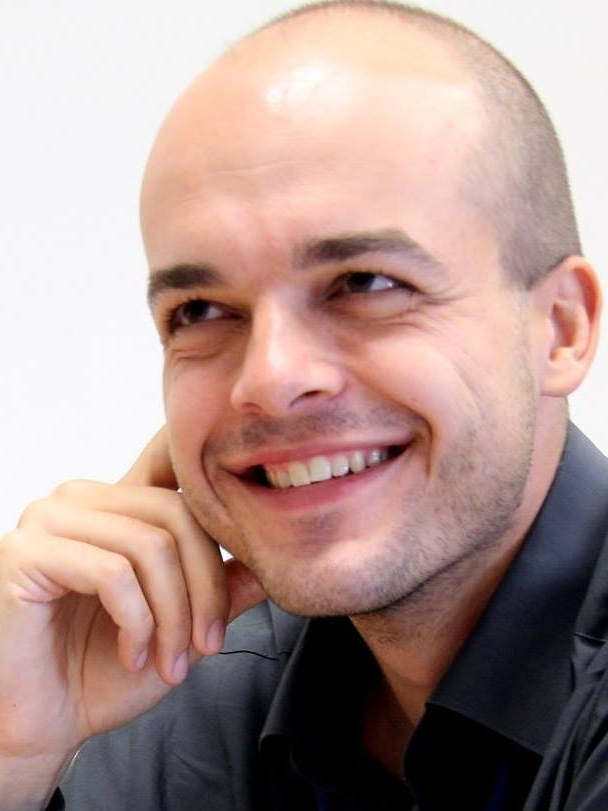
Petr Prášek
Petr Prášek is a postdoc researcher at the Department of Contemporary Continental Philosophy of the Institute of Philosophy, Czech Academy of Sciences. In 2019, he received his Ph.D. in philosophy from the Université Paris 1, Panthéon-Sorbonne, France, and Charles University in Prague, Czech Republic (supervisors: prof. R. Barbaras, prof. M. Petříček). His Ph.D. thesis, Le devenir-autre de l’existence. Essai sur la phénoménologie contemporaine, was awarded the Bolzano Prize by the President of Charles University in 2020.
He published a Czech monograph on Gilles Deleuze’s philosophy, Člověk v šíleném dění světa: Filosofie Gillesa Deleuze (Human in the Mad Becoming of the World: Gilles Deleuze’s Philosophy, 2018), and several articles on contemporary French phenomenology. All these texts deal with the analysis of the becoming-other of human existence. In his current project, P. Prášek is extending his research and focusing on meta-ethical implications of the dynamic descriptions of existence: he attempts to apply the results of contemporary French phenomenology to actual problems such as ecological issues or fake news.
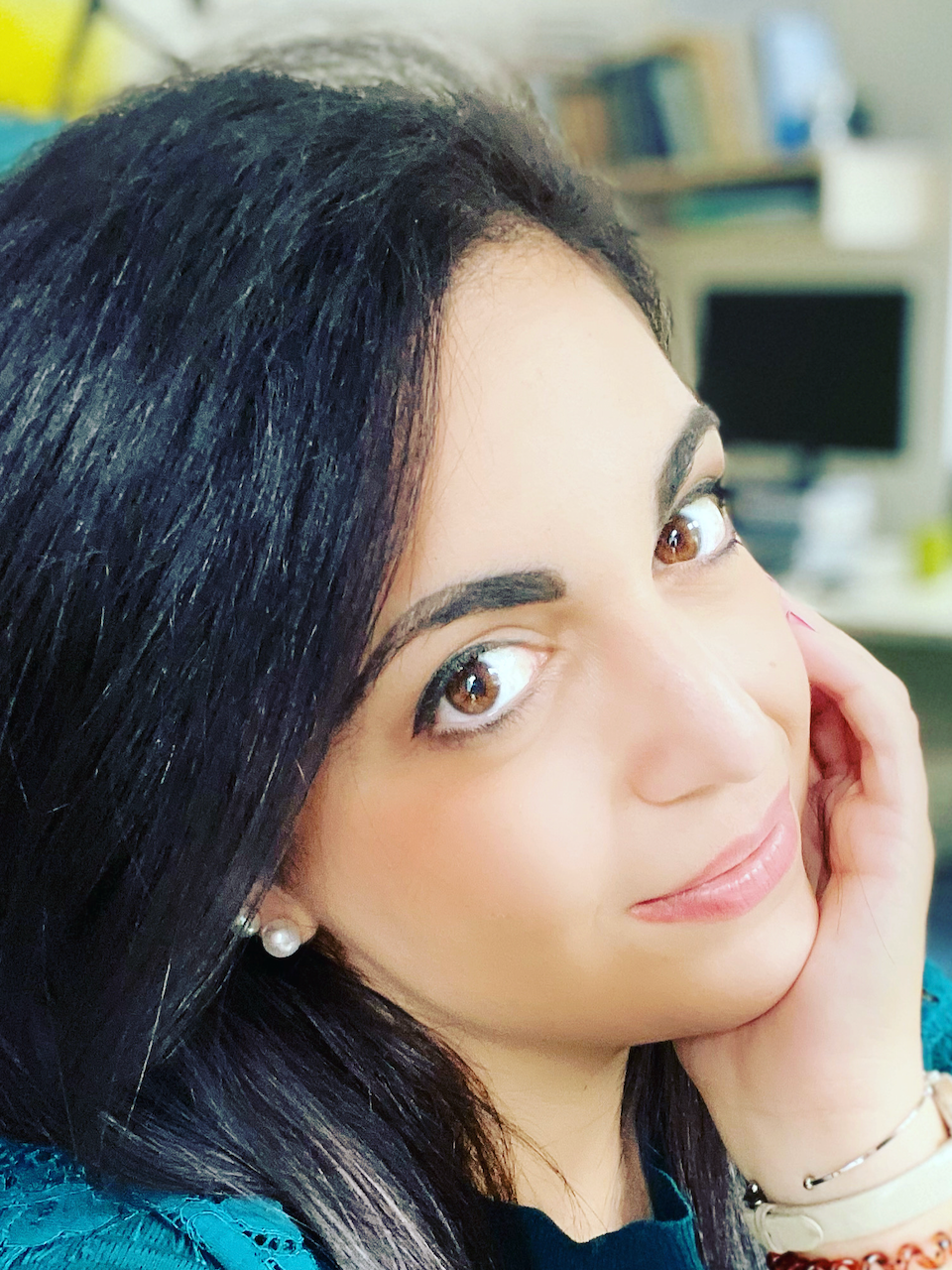
Cristina Vendra
Curriculum Vitae | Selected papers
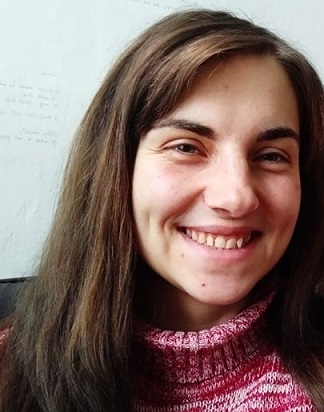
Daniela Matysová
Curriculum Vitae | Selected papers
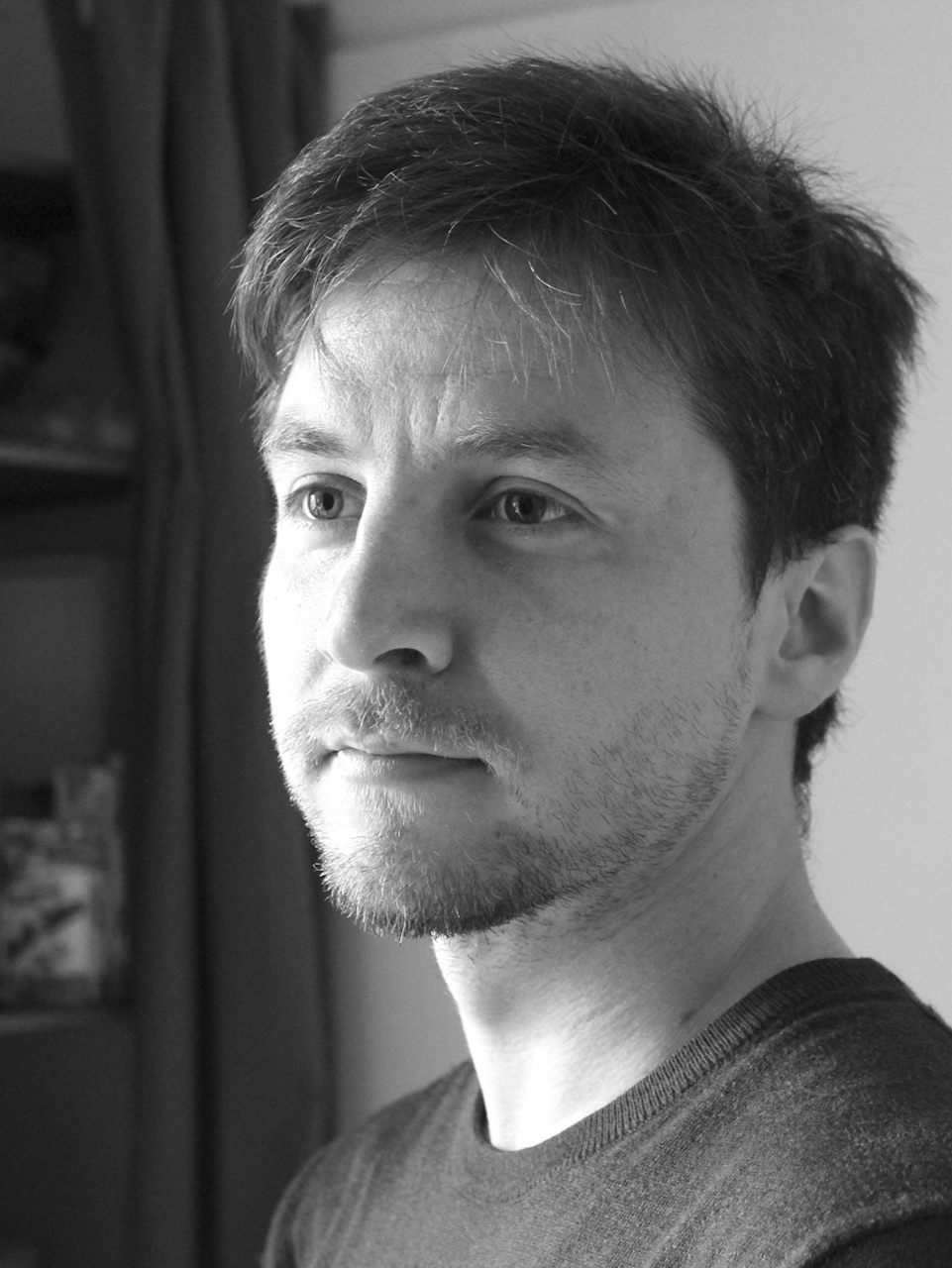
István Fazakas
István Fazakas, a former student of the École Normale Supérieure, and alumnus of the Erasmus Mundus Europhilosophie program, holds a doctorate in philosophy from the Bergische Universität Wuppertal and the Charles University in Prague. He is the author of a book on the phenomenology of ipseity, based on Marc Richir’s phenomenology of phantasía: Le clignotement du soi. Genèse et institutions de l’ipséité (Mémoires des Annales de Phénoménologie 2020). His current research focuses on phenomenological psychopathology, aesthetics, and a phenomenology of the elemental nature of appearing.
Curriculum Vitae | Selected papers
Kristina S. Montagová
Hynek Janoušek
Nonlocal Fellows
Dr. Suzi Adams (University of Adelaide)
Prof. Dr. Johann Arnason (Univerzita Karlova, Praha)
Dr. Helga Blaschek-Hahn (Goethe-Institut Prag)
Dr. Sacha Carlson (Université Nice)
Dr. Ludger Hagedorn (Institut für die Wissenschaften vom Menschen, Wien)
Dr. Cathrin Nielsen (Frankfurt am Main)
Dr. Christian Rabanus (Wiesbaden)
Prof. Dr. Alexander Schnell (Bergische Universität Wuppertal)
Dr. Michael Staudigl (Universität Wien)

